Rio de Janeiro is such an iconic city that we could safely say it’s the first place that comes to mind for many foreigners when they hear the words Brazil or even South America. It is the second-largest city in the country and the most visited in the continent, famous for globally renowned events like Carnival, considered the most famous in the world. If you’re looking for the best areas to stay in Rio de Janeiro for the February festivities or any time of the year, you’ve come to the right place.
Founded by the Portuguese in 1565, Rio de Janeiro has witnessed key moments in Brazil’s history, such as the arrival of the Portuguese royal court in 1808, which transformed the city into the capital of the Empire and the center of political and economic power. Its historical significance is evident in sites like the Paço Imperial, where Dom Pedro I declared Brazil’s independence in 1822, and the São Bento Monastery, whose baroque ornamentation influenced generations of Brazilian artists. Yes, Rio de Janeiro was not only one of Brazil’s historical birthplaces, but it also had the audacity to serve as the capital of Portugal for a time. That alone says a lot about how special and unapologetically unique this city is.
The historic downtown area is home to iconic attractions such as the National Museum of Fine Arts, which showcases fundamental works of Brazilian and international art; the National Library, one of the largest in the world, with a collection that includes rare pieces from the 16th and 17th centuries; the Municipal Theater, famous for its Paris Opera-inspired architecture and world-class cultural performances; and the Banco do Brasil Cultural Center, known for its contemporary and historical exhibitions that attract visitors from across the country.
Perhaps the most famous views of Rio are those from the Christ the Redeemer statue atop Corcovado, Sugarloaf Mountain, and the beaches of Copacabana and Ipanema, immortalized in countless films, images, and songs, including Barry Manilow’s “Copacabana” and Antônio Carlos Jobim and Vinicius de Moraes’ “The Girl from Ipanema,” a song that took the world by storm with its unforgettable rhythm.
For those seeking a connection with nature, Tijuca National Park, one of the world’s largest urban forests, offers scenic trails and breathtaking viewpoints, while the Botanical Garden features a vast collection of tropical flora.
In Rio, culture is alive in every corner, with samba woven into everyday life—from spontaneous jam sessions in local communities to the Carnival rehearsals that electrify the city’s neighborhoods year-round.
What are the best areas to stay in Rio de Janeiro?
Among the best areas to stay in Rio de Janeiro are neighborhoods like Copacabana, with its famous beachfront, Ipanema, known for its charm and sophistication, and Barra da Tijuca, which combines wide beaches with modern infrastructure. The cultural heartbeat of the city can be felt in Lapa, famous for its nightlife and the historic Arcos da Lapa, while Santa Teresa charms visitors with its winding streets and historic mansions. These neighborhoods showcase the artistic and musical soul of the city, from samba to traditional choro music. Each area offers a unique experience that reflects the essence of Rio.
1. Copacabana
Stay on one of the world’s most famous beaches
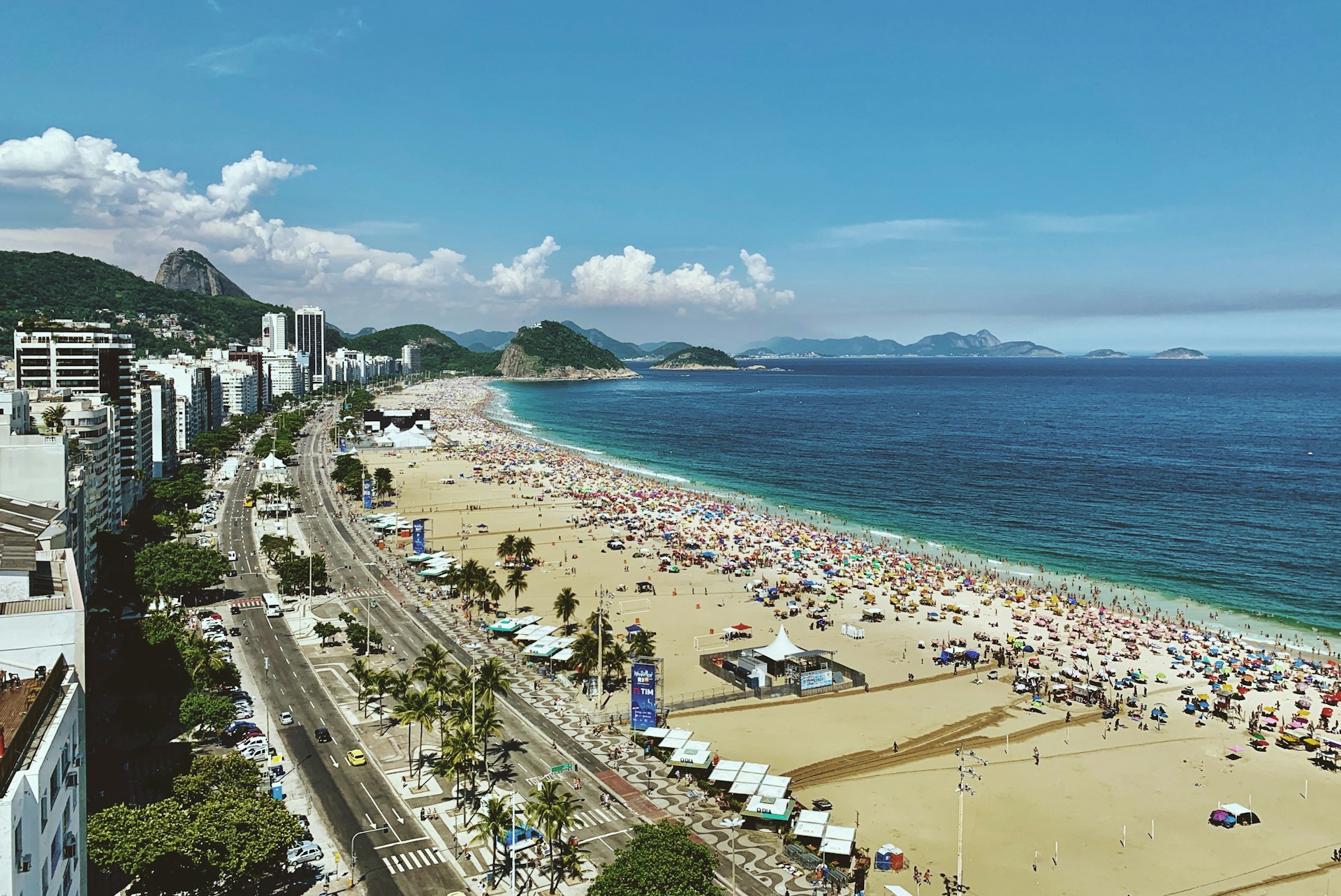
Copacabana is the beating heart of Rio. Extensive beaches, vibrant nightlife and beautiful people make it a paradise for those who want to enjoy the Carnival City.
Copacabana, locally known as the “Little Princess of the Sea,” is one of the most iconic neighborhoods in Rio de Janeiro. Located in the southern zone, about 6.2 miles (10 km) south of the historic center, this area is famous for its crescent-shaped beach, which stretches for 2.5 miles (4 km) of white sand and crystal-clear waters, bordered by a promenade featuring the famous black-and-white wave mosaic, inspired by Cascais Beach in Portugal.
Copacabana stands out for its rich history, as the birthplace of the famous wave-patterned sidewalk, its vibrant cultural scene, and its world-class infrastructure. Throughout the 20th century, Copacabana became a symbol of Brazilian glamour, with its elegant beachfront hotels, such as the legendary Copacabana Palace, which has hosted celebrities and world leaders. The area has also been the backdrop for historic moments, including massive concerts on the beach featuring international artists that attracted millions of spectators.
For food lovers, Copacabana offers a wide range of options, from traditional beachfront bars and kiosks to upscale restaurants serving Brazilian and international cuisine. Local specialties include fresh seafood dishes and the iconic “biscoito Globo,” a crispy snack sold by beach vendors along the shore.
Copacabana is also famous for its lively nightlife, featuring legendary samba bars like Bip Bip, where traditional music blends with the neighborhood’s bohemian spirit. The area is home to historic live music venues that celebrate Rio’s cultural heritage. Additionally, the beachfront promenade comes alive at night with artisan markets and street performances, creating a vibrant atmosphere. Whether you’re looking for classic samba, live shows, or trendy nightclubs, Copacabana offers something for every taste.
When it comes to infrastructure, Copacabana is well-served by public transportation. Metro stations like Cardeal Arcoverde, Siqueira Campos, and Cantagalo provide quick connections to downtown and other southern neighborhoods. Regular bus routes along Avenida Atlântica and Barata Ribeiro ensure convenient access to other parts of Rio. Additionally, the neighborhood’s proximity to attractions like Forte de Copacabana and Sugarloaf Mountain makes it an ideal base for exploring the city.
Staying in Copacabana is a unique experience that combines convenience, natural beauty, and an authentic immersion in Rio’s culture. With a wide range of accommodations, from budget hostels to luxurious beachfront hotels, it remains one of the best areas to stay in Rio de Janeiro.
Our hand-picked accommodations in Copacabana
2. Ipanema
The best area for stylish nightlife and LGBTQ+ travelers

Ipanema is a charming destination offering lovely beaches, exclusive stores and a vibrant LGBTQ+ nightlife.
Ipanema, immortalized by the famous song “The Girl from Ipanema” by Vinicius de Moraes and Tom Jobim, perfectly reflects the essence of the neighborhood: laid-back charm, natural beauty, and an inspiring atmosphere that has captivated the world. The lyrics, written as the composers watched a young woman stroll along the shore, captured the unique vibe of the area, turning it into a symbol of bossa nova and Carioca culture. Located in the city’s southern zone, between Leblon and Copacabana, Ipanema is known for its blend of stunning landscapes and cultural atmosphere, with art galleries, bookstores, and events that celebrate Rio’s rich musical and literary traditions.
The Ipanema Hippie Fair, held every Sunday at General Osório Square, is a local landmark offering handmade crafts, clothing, and unique artwork that reflect Brazilian creativity. For food lovers, Ipanema boasts a wide selection of award-winning restaurants and cozy bars. The cafés along Visconde de Pirajá Street are perfect for a relaxing break.
Ipanema’s nightlife is both sophisticated and lively, featuring exclusive cocktail bars like Bar Vinícius, which pays tribute to bossa nova, and traditional samba venues like Pedra do Sal, where Rio’s culture comes alive. Trendy clubs such as Galeria Café attract a diverse crowd, ensuring unforgettable nightlife experiences. Iconic spots like Bar Astor and Tô Nem Aí are also staples of the local scene.
Additionally, Ipanema Beach, with its famous “postos” (lifeguard stations) dividing the shoreline into different sections, attracts a diverse crowd. Posto 9, for instance, is a popular meeting spot for young creatives and artists, while Posto 8 is well known as a hub for the LGBTQIA+ community.
When it comes to mobility, Ipanema is well-connected by public transport, with the General Osório metro station providing easy access to downtown, Maracanã, and the beaches of Copacabana and Barra da Tijuca. The neighborhood’s central hub, General Osório Square, makes getting around convenient. Ipanema is also famous for its tree-lined streets and is considered one of the safest neighborhoods to stay in Rio de Janeiro.
Staying in Ipanema offers a perfect blend of luxury, convenience, and an authentic taste of the Carioca lifestyle. With a selection of boutique hotels, modern apartments, and charming guesthouses, the neighborhood is one of the best areas to stay in Rio de Janeiro.
Our hand-picked accommodations in Ipanema
3. Leblon
The safest area to stay in Rio de Janeiro
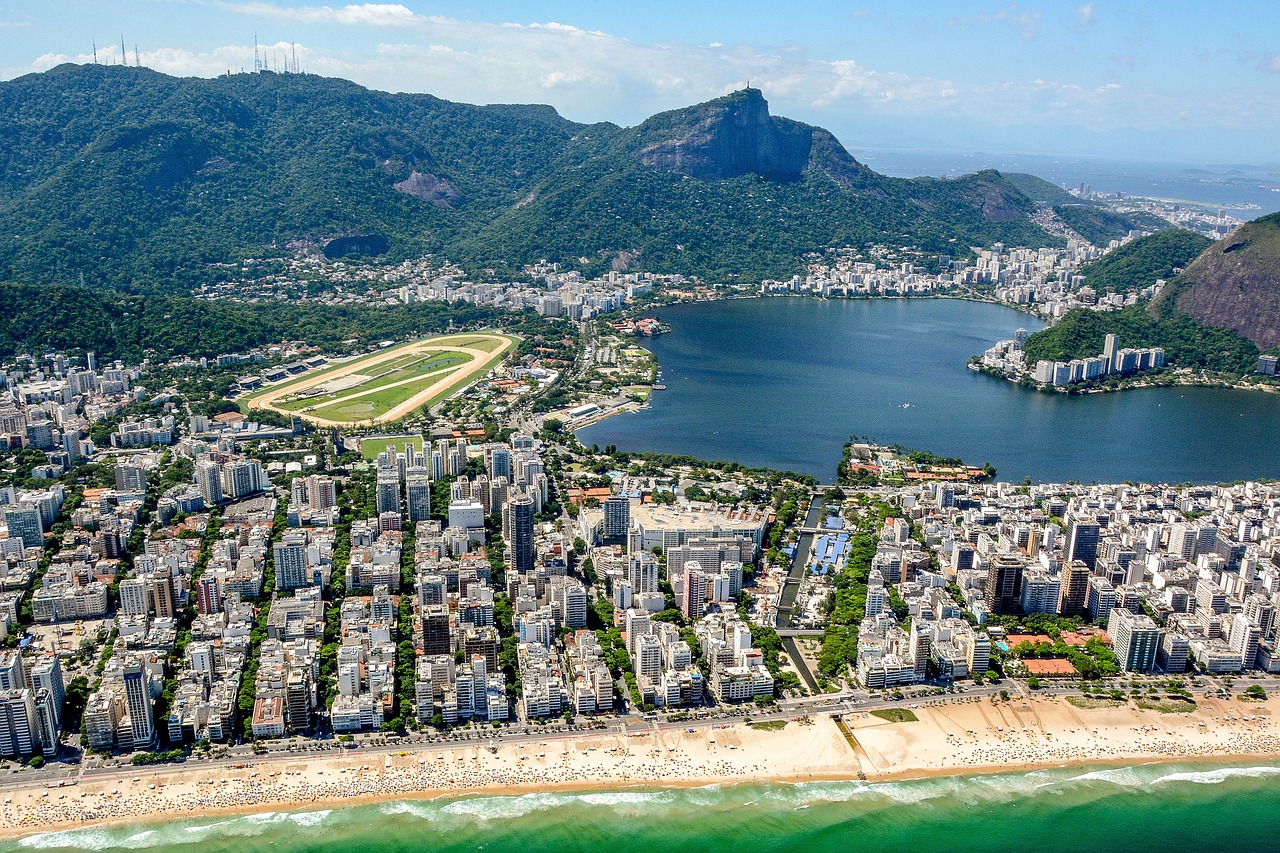
Leblon has incredible restaurants, designer stores and a quiet beach, ideal for those who want to relax and enjoy the best of Rio de Janeiro.
Leblon, often associated with luxury and exclusivity, stands out for its high-end real estate market and reputation for offering privacy, making it a retreat for many celebrities in Rio de Janeiro. Located next to Ipanema in the city’s southern zone, Leblon is known for its peaceful atmosphere, less crowded beaches, and being a prime location for those seeking comfort and security during their stay.
Leblon Beach is one of the neighborhood’s main highlights, featuring golden sand and views of the Dois Irmãos Mountain. Visitors can explore challenging trails that lead to breathtaking panoramic viewpoints while learning about the area’s deep connection with the local community. Along the beachfront, the Leblon Lookout is a perfect spot to relax and enjoy what is considered one of the most beautiful sunsets in Rio.
The neighborhood is also an important gastronomic and cultural hub. Leblon is home to some of Brazil’s most acclaimed restaurants, such as Olympe, recognized for its Michelin stars, and Sushi Leblon, frequently praised by critics in publications like the Guia Quatro Rodas. Additionally, the Teatro do Leblon offers a diverse program that attracts theater lovers from across the city.
For shopping enthusiasts, the neighborhood features Shopping Leblon, one of the city’s most modern malls, offering luxury brands and exclusive boutiques. The area also has charming bookstores and cafés that provide a cozy atmosphere, perfect for unwinding.
Leblon is well connected by public transport, with the Antero de Quental metro station providing direct access to downtown Rio and the rest of the southern zone. It is also within walking distance of key locations like Shopping Leblon and the beachfront. Its tree-lined streets and residential feel make it an ideal neighborhood for strolling, especially in the evening when the area is quieter and its reputation for safety stands out.
Staying in Leblon is synonymous with exclusivity and comfort. With a selection of boutique hotels, luxury apartments, and accommodations offering ocean views, it is considered one of the most exclusive and secure areas to stay in Rio de Janeiro.
Our hand-picked accommodations in Leblon
4. Barra da Tijuca
The best district to stay in in Rio de Janeiro for foreign travelers

Barra da Tijuca has long, quiet beaches, ideal for those seeking peace and plenty of space. Perfect for families and beach sports.
Barra da Tijuca, simply known as “Barra” by locals, stands out for its planned urban development, wide avenues, and modern residential complexes, making it one of the most well-structured neighborhoods in Rio de Janeiro. Located in the city’s western zone, about 9.3 miles (15 km) southwest of Copacabana and 15.5 miles (25 km) west of downtown, it is a great option for those looking for one of the safest areas in the city.
Barra da Tijuca Beach is the longest in Rio, stretching over 11 miles (18 km) of white sand and crystal-clear waters, ideal for water sports such as surfing, kitesurfing, and stand-up paddleboarding. Additionally, the neighborhood is known for its quieter beaches, like Praia da Reserva, which offers a more preserved and less crowded environment.
Barra da Tijuca is also one of the city’s main entertainment and shopping hubs, with highlights such as BarraShopping, home to over 700 stores, including exclusive brands like Gucci and Apple, making it one of the largest malls in Latin America. Other key attractions include Cidade das Artes, a modern architectural cultural center that hosts prestigious artistic and musical events.
The culinary scene in Barra is diverse, featuring standout spots such as Restaurante Gero, known for its refined Italian cuisine, and Espírito Santa, which specializes in Amazonian flavors. The beachfront kiosks are also a highlight, offering traditional snacks like shrimp pastries and caldinho de feijão (black bean soup). Fresh seafood is served at seaside restaurants, while upscale establishments like Esplanada Grill cater to those who appreciate high-quality meats. Additionally, the neighborhood has several food parks, creating a relaxed environment for exploring new flavors.
For those who enjoy outdoor activities, Barra offers options like the Marapendi Municipal Nature Park, an excellent spot for hiking and wildlife observation.
In terms of transportation, Barra is connected to the metro system, linking the neighborhood to the southern zone and downtown. Stations like Jardim Oceânico provide integration with the high-frequency BRT system, offering quick access to areas like Recreio and Vila Militar, ensuring efficient travel both within the neighborhood and to other parts of Rio.
Staying in Barra da Tijuca is an excellent choice for those who value space, modernity, and top-tier infrastructure.
Our hand-picked accommodations in Barra da Tijuca
5. Lapa
The best place to stay in Rio de Janeiro for nightlife
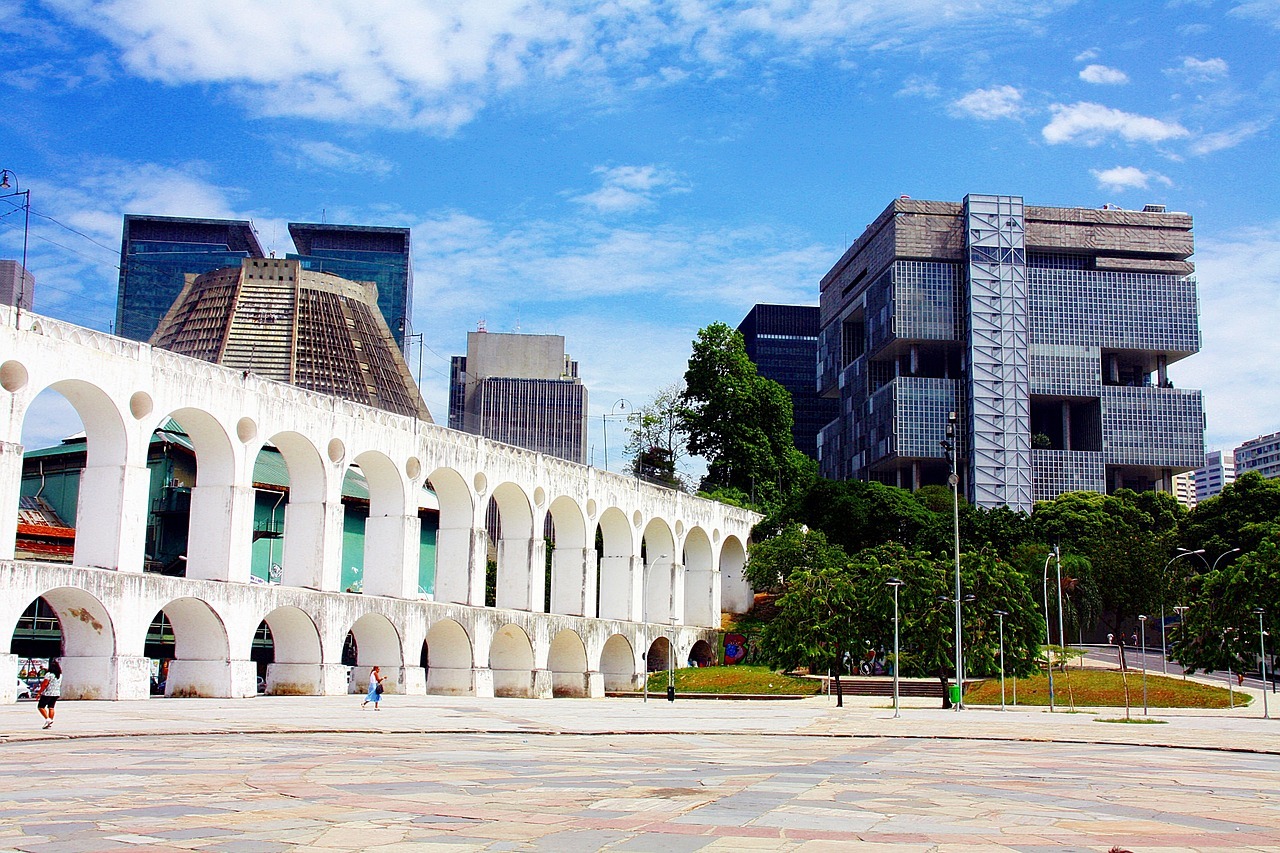
Lapa is the epicenter of Rio’s nightlife. It’s packed with bars, samba houses and vibrant atmosphere.
Lapa, located in the heart of Rio de Janeiro, is one of the city’s most vibrant and culturally rich neighborhoods, recognized as the birthplace of samba and choro, with a musical tradition dating back to the early 20th century. Known as the epicenter of Rio’s nightlife, Lapa is famous for its historic arches and the lively mix of bars, samba clubs, and nightspots that attract visitors from all over the world.
The Arcos da Lapa, built in the 18th century as an aqueduct to supply the city with water from the Carioca River, is a historic and architectural landmark of Rio de Janeiro. Since the early 20th century, the arches have been repurposed as a viaduct connecting Santa Teresa to downtown. The surrounding streets are filled with graffiti murals and an artistic scene that blends contemporary and traditional influences.
During the day, Lapa is a fascinating place to explore on foot, with options such as guided tours through its historic streets, where visitors can admire colonial architecture and vibrant murals that tell local stories. Key sights include the Mercado das Artes in Praça Tiradentes and the Selarón Steps, a colorful mosaic masterpiece created by Chilean artist Jorge Selarón, which has become a cultural landmark of Rio. The neighborhood is also home to cultural centers and museums, including Sala Cecília Meireles, known for its excellent classical music concerts.
At night, the neighborhood comes alive with a variety of live music, ranging from samba to forró, in iconic venues like Rio Scenarium, famous for its antique-inspired decor and theatrical ambiance, and Fundição Progresso, a historic cultural space that hosts concerts by major artists and alternative events within its preserved industrial structure.
Lapa’s food scene reflects the neighborhood’s cultural richness, featuring a mix of traditional bars and modern restaurants.
Lapa also offers convenient infrastructure for visitors, with transportation options such as buses and the Cinelândia metro station, which connects the neighborhood to the historic center, Botafogo, and other key areas in the southern zone.
Staying in Lapa is ideal for those who want to immerse themselves in Carioca culture and enjoy an authentic experience. One of the biggest draws of the area is its wide range of accommodation options, which also tend to be more affordable compared to beachfront neighborhoods.
Our hand-picked accommodations in Lapa
6. Botafogo
An upscale district with incredible views

Botafogo offers a stunning view of Sugarloaf Mountain, along with charming cafés and a unique cultural vibe. Perfect for history lovers and scenic landscapes.
Botafogo, a charming neighborhood in Rio de Janeiro’s southern zone, is uniquely defined by its breathtaking view of Sugarloaf Mountain, which rises majestically over Botafogo Bay, creating one of the most recognizable and photographed landscapes in Brazil. Located about 2.5 miles (4 km) northeast of Copacabana Beach, this neighborhood is an excellent choice for a relaxed atmosphere with easy access to other key areas of Rio.
Botafogo Beach is one of the neighborhood’s main highlights, offering a stunning backdrop for walks and incredible views, though it’s not a popular spot for swimming. The bay is also a great place to admire sailboats and yachts, adding to the area’s unique charm.
The neighborhood is home to the famous Espaço Itaú de Cinema, known for screening independent and art films, and the Villa-Lobos Museum, dedicated to celebrating the life and work of the renowned Brazilian composer. Nearby, the Earth Sciences Museum focuses on geology and paleontology, showcasing an extensive collection of minerals, fossils, and rocks, along with exhibits exploring Brazil’s natural history.
When it comes to dining, Botafogo is home to acclaimed restaurants such as Lasai, praised for its contemporary cuisine, as well as a variety of cozy bars and cafés spread throughout the neighborhood.
In terms of transportation, Botafogo is well-served by the Botafogo metro station, which connects the neighborhood to the northern zone, downtown, and other southern districts like Copacabana and Ipanema. Its tree-lined streets also make it a pleasant place to explore on foot, with plenty of shopping and entertainment options along the way.
Our hand-picked accommodations in Botafogo
7. Downtown Rio de Janeiro
A great location for backpackers and budget-conscious travelers
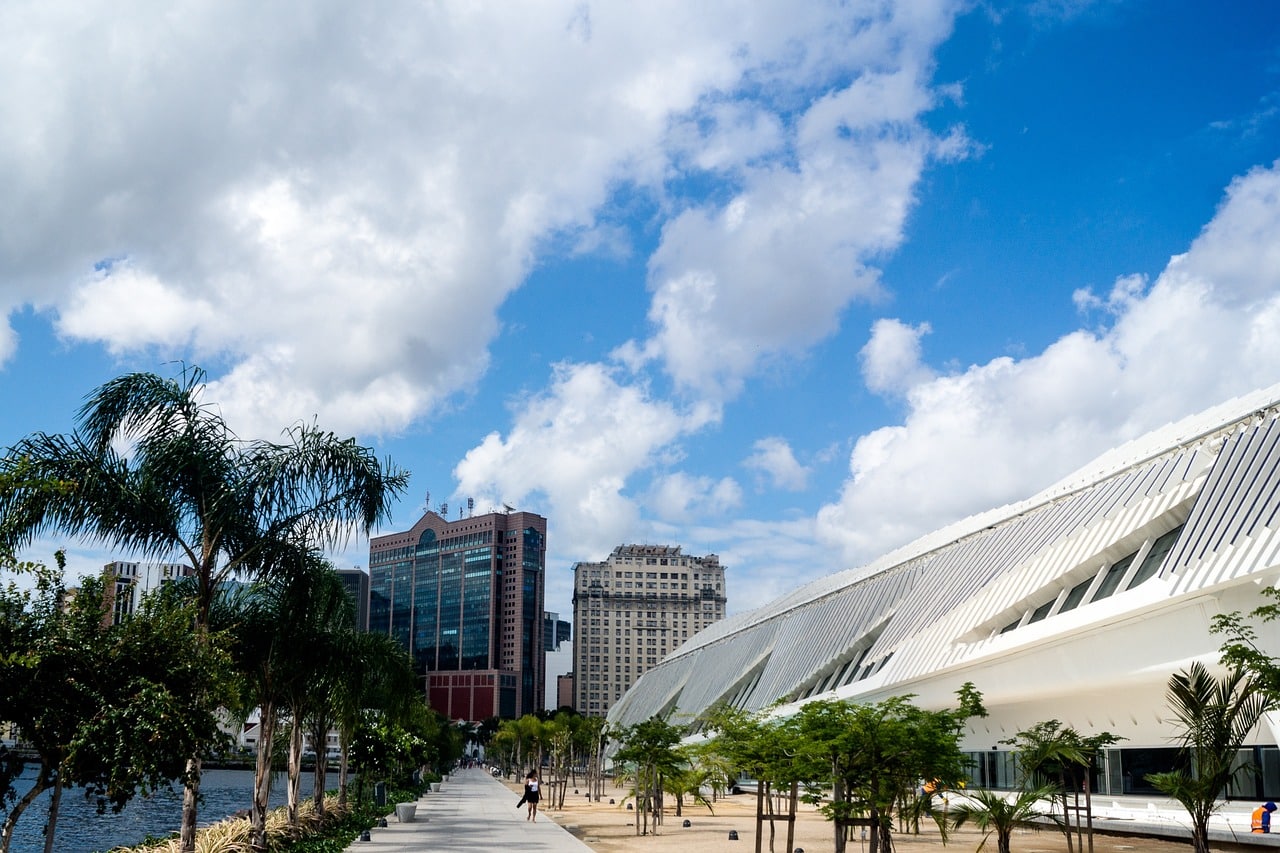
Downtown Rio offers easy access to tourist attractions, efficient public transportation and impressive architecture.
Downtown Rio de Janeiro, founded in the 16th century as the original hub of Portuguese colonization in the city, is a district steeped in history. This was where Brazil became the seat of the Portuguese Empire in 1808, when the royal court fled Europe to escape Napoleon’s invasions. This moment transformed the downtown area into a political and cultural center, leading to the construction of landmarks such as the Paço Imperial, which served as the official residence of Dom João VI and hosted significant events, including the signing of the Golden Law in 1888.
Today, the district preserves its colonial and neoclassical heritage in monuments like the Candelária Church and the architectural ensemble of Largo da Carioca. At the same time, downtown Rio reflects the city’s modern side, with revitalized areas like the Olympic Boulevard and the iconic Museum of Tomorrow, which bridges history with scientific and cultural innovation.
One of the most iconic attractions in downtown Rio is the Municipal Theater, a Paris Opera-inspired building constructed in 1909. The area is also home to the National Library, the largest in Latin America, housing a collection of over 10 million items. Another highlight is the Museum of Art of Rio (MAR), which explores the city’s history and cultural diversity. Additionally, the Candelária Church, an 18th-century baroque landmark, stands as a must-visit site.
Downtown is also known for its bustling markets and fairs. The Saara shopping district, with over 1,200 stores, is the perfect place for bargain shopping, while the Lavradio Street Fair, held on the first Saturday of each month, attracts visitors with antiques, handicrafts, and live music performances.
In terms of transportation, downtown Rio serves as the city’s main transit hub, with metro stations like Carioca, Uruguaiana, and Cinelândia providing easy access to major attractions and neighborhoods. The VLT light rail system further enhances mobility, linking Santos Dumont Airport to the port area, home to the Museum of Tomorrow and AquaRio.
Downtown Rio is an attractive option for budget travelers, offering a wide range of affordable accommodations, from hostels to budget hotels. However, as with any major urban center, visitors should remain cautious, particularly in less crowded areas like Avenida Presidente Vargas at night. It is advisable to avoid isolated side streets and stick to well-lit main roads and plazas such as Praça XV and Largo da Carioca.
Our hand-picked accommodations in Downtown Rio
8. Santa Teresa
A traditional area to stay in Rio de Janeiro
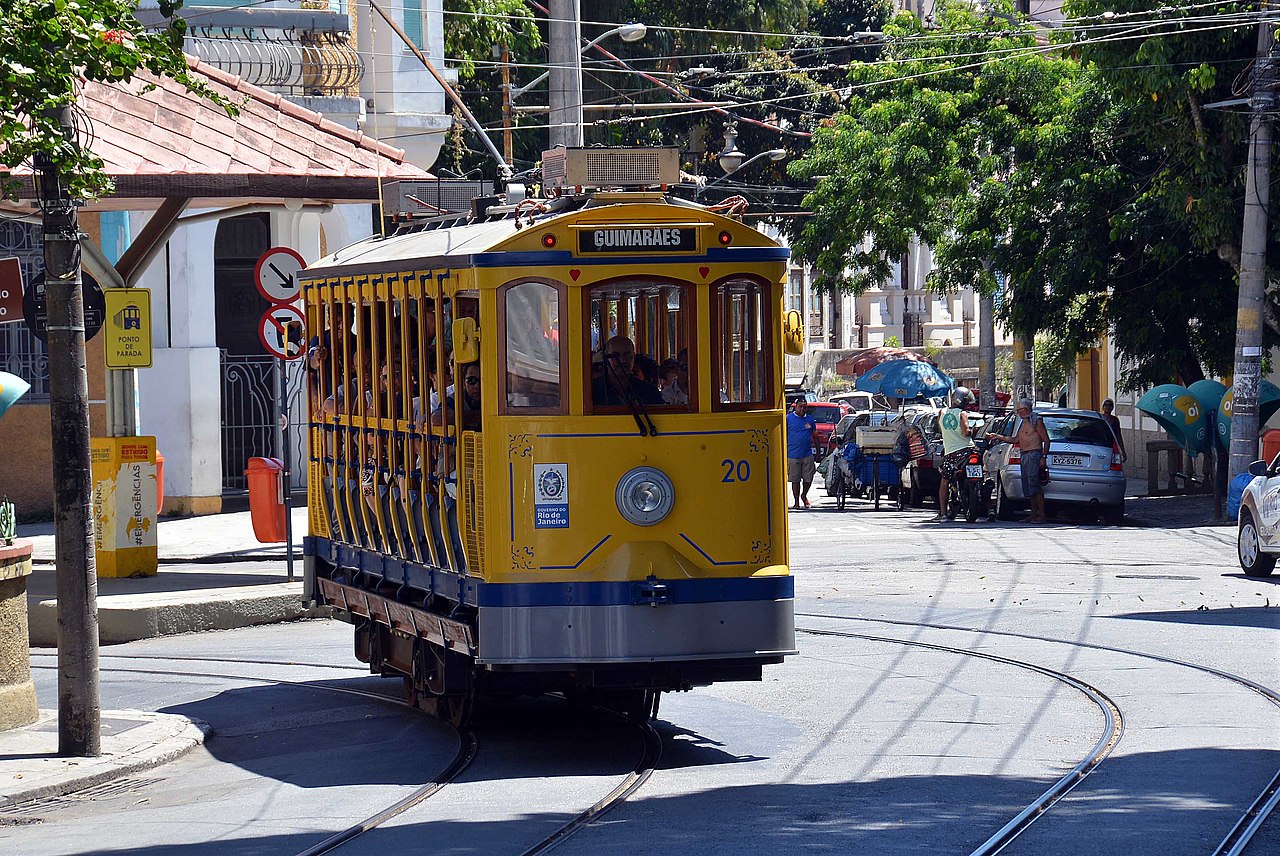
Santa Teresa is a bohemian neighborhood with historic houses, art studios and charming streets.
Santa Teresa, one of Rio de Janeiro’s most charming and bohemian neighborhoods, is known for its winding streets, historic mansions, and artistic atmosphere. Perched atop a hill between downtown and the southern zone, Santa Teresa offers panoramic views of the city.
The neighborhood has a rich history dating back to the 19th century when it became a retreat for Rio’s elite. Its elegant mansions still preserve architectural elements from that era, while many have been transformed into art studios, guesthouses, and cafés. The famous Santa Teresa tram, in operation since 1877, is one of the neighborhood’s most iconic attractions. Originally built to facilitate access to Rio’s elevated areas, the tram has since become a cultural and historical symbol. Other cultural highlights include the Parque das Ruínas, a cultural center set within the ruins of an old mansion that hosts art exhibitions and outdoor events, and the Museu Chácara do Céu, home to an impressive collection of modern Brazilian and international art. The neighborhood’s streets are also filled with vibrant murals and small studios showcasing local artists’ talent.
For nature lovers, Santa Teresa offers easy access to Tijuca National Park, where trails lead to hidden waterfalls and breathtaking viewpoints. While Santa Teresa is known for its laid-back atmosphere, visitors should take basic precautions when exploring the neighborhood, especially at night.
Staying in Santa Teresa is a unique choice for those looking to immerse themselves in Rio de Janeiro’s artistic and historical essence.
Our hand-picked accommodations in Santa Teresa
9. Flamengo
A quiet area to find accommodation in Rio
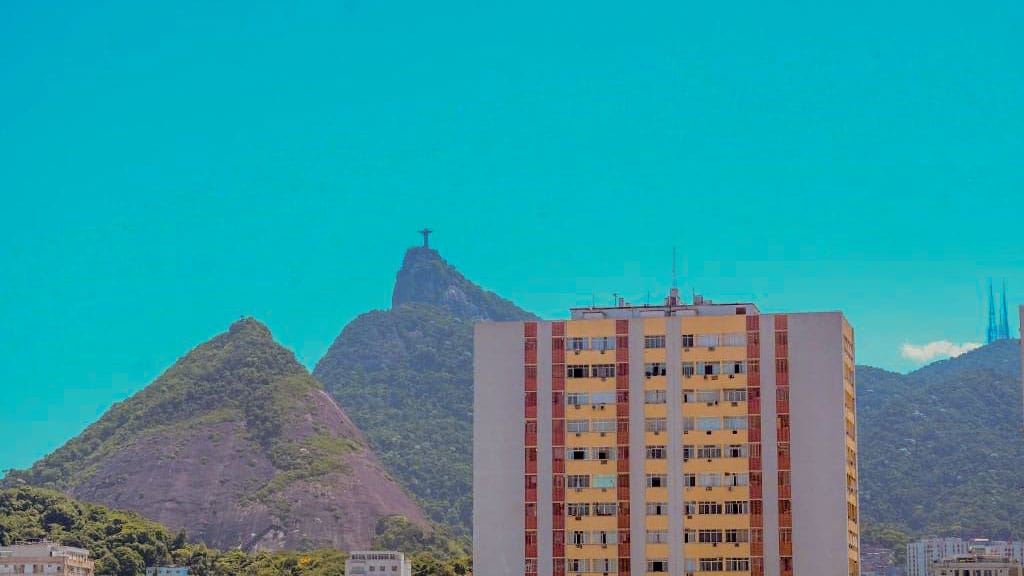
Flamengo is ideal for nature lovers, with the beautiful Aterro Park and easy access to Guanabara Bay.
Located between downtown and Botafogo, Flamengo is known for being home to Brazil’s first planned urban park, Parque do Flamengo, and for its peaceful atmosphere.
The Parque do Flamengo, designed by renowned landscape architect Roberto Burle Marx, is the highlight of the neighborhood. This vast green space features lush gardens, sports areas, and bike paths stretching along the waterfront. Additionally, the park is home to historical monuments, such as the Monumento aos Pracinhas, and cultural spaces like the Museum of Modern Art (MAM), which houses an impressive collection of contemporary Brazilian art.
Flamengo also boasts a rich architectural history, with buildings ranging from early 20th-century mansions to modernist constructions. The Palácio do Catete, the former seat of the Brazilian presidency, is one of the neighborhood’s most notable landmarks.
Although Flamengo Beach is not ideal for swimming due to water quality, it offers one of the most iconic views of Sugarloaf Mountain.
This quiet neighborhood is well-connected by public transportation, with the Flamengo metro station providing quick access to downtown, the southern zone, and Barra da Tijuca. Additionally, several bus lines serve the area.
Our hand-picked accommodations in Flamengo
10. Maracanã
The best location for Brazilian ‘futebol’ fans

Maracanã offers convenience and easy access to the legendary stadium.
Located in Rio de Janeiro’s northern zone, the Maracanã district is famous for being home to the iconic Maracanã Stadium, one of the most legendary football venues in the world. Built for the 1950 FIFA World Cup, the stadium has hosted historic events, including the 2014 World Cup final and concerts by renowned artists such as Paul McCartney and Madonna. Football fans can take a guided tour of the stadium, exploring the locker rooms, the pitch, and a museum celebrating unforgettable moments in Brazilian football history.
Beyond the stadium, the neighborhood offers easy access to other important sites in Rio, such as the Sambadrome and the Rio de Janeiro State University (UERJ), an architectural landmark in the area. Another highlight is the Quinta da Boa Vista Park, a historic site that once served as the residence of the Brazilian imperial family and is now home to the National Museum.
The neighborhood is well-served by the Maracanã and São Cristóvão metro stations. This area of Rio also offers budget-friendly accommodation options, ranging from affordable hotels to modern apartments.
Our hand-picked accommodations near Maracanã
11. Lagoa & Jardim Botânico
Upscale and safe areas to stay in Rio de Janeiro
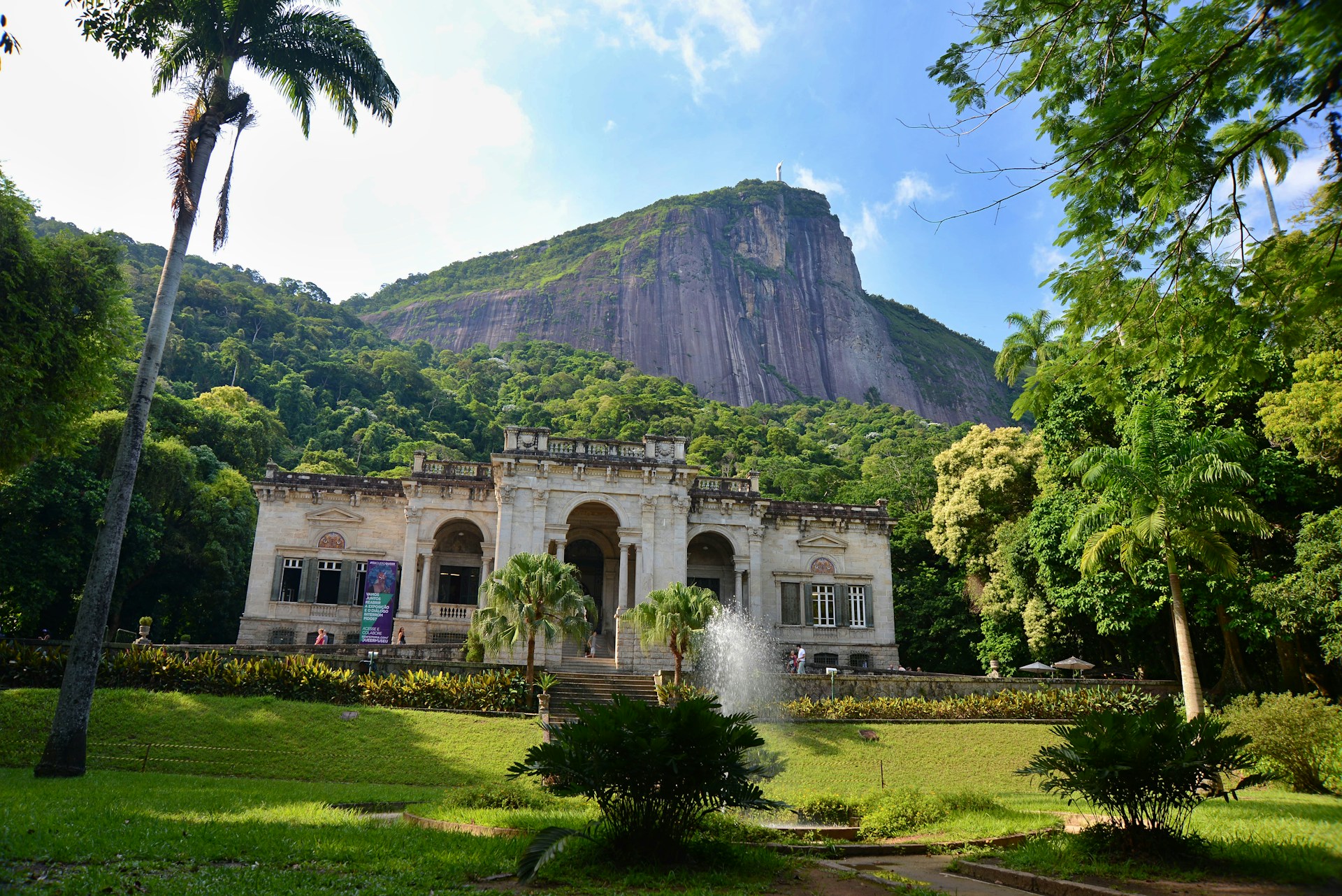
With the Rodrigo de Freitas Lagoon and Rio’s iconic Botanical Gardens, the Lagoa and Jardim Botânico neighborhoods are some of the most elegant in the city.
The neighboring areas of Lagoa and Jardim Botânico, located in Rio de Janeiro’s southern zone, are among the city’s most sophisticated neighborhoods and home to some of its most iconic green spaces. Situated between the famous beaches of Copacabana and Ipanema, these areas are among the best places to stay in Rio.
The Rodrigo de Freitas Lagoon is the heart of this district, offering a breathtaking setting surrounded by mountains and lush greenery. Nearby, the Jardim Botânico, founded in 1808 by Dom João VI, is one of Rio de Janeiro’s most significant attractions. This space blends history and nature, featuring a collection of over 6,000 plant species, including rare tropical flora. Another highlight is Parque Lage, a former aristocratic estate turned cultural and artistic center. Located at the base of Corcovado Mountain, the park combines beautifully landscaped gardens with a historic mansion that hosts art exhibitions and cultural events.
Beyond the natural attractions, Lagoa and Jardim Botânico are known for their restaurants, such as Aprazível, famous for its panoramic views and dishes featuring Brazilian ingredients, as well as charming cafés near the botanical gardens.
Regarding transportation, while there are no metro lines directly serving these areas, several bus routes connect the main avenues, such as Borges de Medeiros and Epitácio Pessoa, to nearby stations like Jardim de Alah and Botafogo within minutes.
Our hand-picked accommodations in Jardim Botânico & Lagoa
12. Jacarepaguá
A perfect area for nature and tranquillity
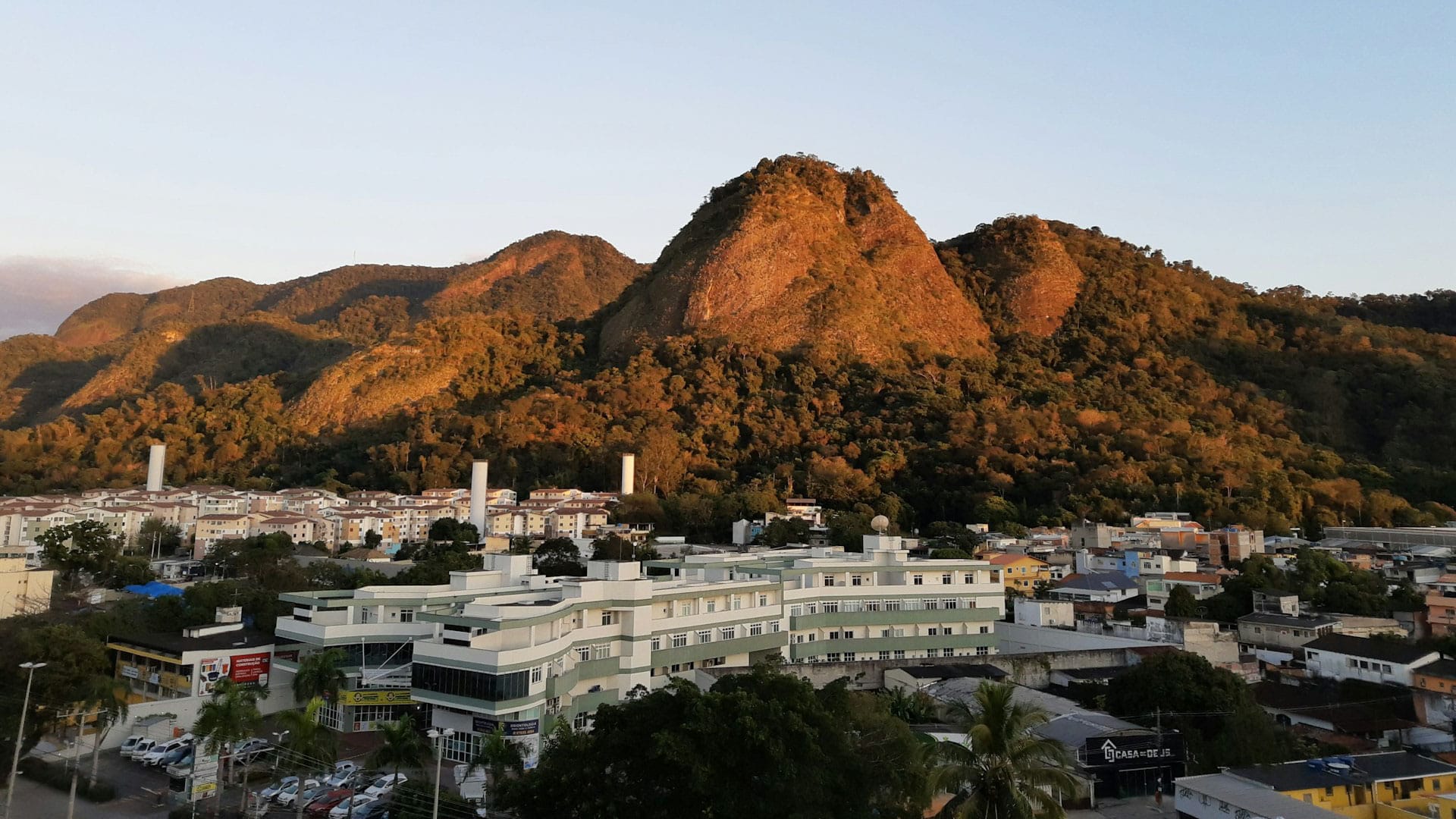
Jacarepaguá has a quiet, family atmosphere, with good leisure and nature options.
Jacarepaguá, located in Rio de Janeiro’s western zone, about 15.5 miles (25 km) from Copacabana and 12.5 miles (20 km) from downtown, is one of the city’s largest neighborhoods in terms of area and serves as a gateway to Barra da Tijuca.
One of the neighborhood’s highlights is the Cidade das Artes, a modern cultural complex that hosts theater performances, concerts, and art exhibitions. Jacarepaguá is also known for the Olympic Arena, one of the key legacies of the 2016 Olympics, which continues to host major sports events and concerts. Another standout attraction is the Cidade do Rock, the venue for the world-famous Rock in Rio festival, which draws thousands of visitors and international artists for unforgettable musical performances.
Jacarepaguá is surrounded by stunning natural landscapes, including the Pedra Branca State Park, the world’s largest urban forest, offering hiking trails, waterfalls, and rich biodiversity. Another point of interest is the Bosque da Barra Municipal Nature Park.
In terms of transportation, Jacarepaguá is best suited for travelers with access to a car, as the neighborhood is not served by Rio’s metro system. Major expressways, such as Linha Amarela and Transcarioca, provide easy access, while the BRT system is a viable option for getting around within the western zone.
Our hand-picked accommodations in Jacarepaguá
13. Around Santos Dumont Airport (SDU)
A convenient area for domestic stopovers

Staying near Santos Dumont Airport offers practicality and easy access to Downtown Rio.
Santos Dumont Airport (SDU), located in downtown Rio de Janeiro, is a convenient option for travelers seeking quick access to the city’s main areas. Situated less than 3 miles (5 km) from landmarks like Sugarloaf Mountain and Flamengo Park, Santos Dumont provides easy connections to both the southern and central zones.
Santos Dumont is one of two airports serving the city and operates almost exclusively domestic flights. It is widely used for short trips and quick connections, serving as one of the main hubs for flights between Rio de Janeiro and São Paulo on the so-called “Ponte Aérea” (Air Bridge). Major airlines operating at the airport include LATAM, Gol, and Azul, with frequent routes to cities such as Brasília, Belo Horizonte, Porto Alegre, and Salvador.
The airport is connected to the public transportation system by buses and taxis, while ride-hailing apps are also widely used.
Staying near Santos Dumont is ideal for business travelers, those with short layovers, or visitors looking to explore downtown Rio and its cultural attractions.
Our hand-picked accommodations near Santos Dumont Airport
14. Around Rio de Janeiro International Airport (GIG)
A convenient area for long stopovers or early morning flights

Staying close to Rio de Janeiro/Galeão International Airport offers maximum convenience for air travelers.
Rio de Janeiro International Airport (Galeão – GIG), located on Ilha do Governador, about 12.5 miles (20 km) from downtown Rio de Janeiro, is a strategic option for travelers with long layovers or short visits.
Galeão is one of two airports serving the city and is among the most important in Brazil and South America, functioning as the main international gateway to Rio de Janeiro. While Santos Dumont primarily handles domestic flights and is closer to downtown, Galeão stands out as the city’s main international airport, offering modern infrastructure and connections to destinations worldwide.
It serves as a key hub for airlines such as LATAM, Gol, and Azul, while also receiving international flights from carriers like Lufthansa, TAP Air Portugal, Air France, Iberia, and American Airlines.
Its facilities include two modern terminals. Public transportation options include the BRT Transcarioca, which connects the airport to the metro at Vicente de Carvalho station, providing access to downtown and the southern zone. Executive buses offer direct connections to Copacabana and Barra da Tijuca, while taxis and ride-hailing apps are also available.
Staying near Galeão can be convenient for travelers in transit, those with early-morning flights, or business visitors with commitments in the northern zone.
Our hand-picked accommodations near Rio de Janeiro International Airport
Read this in other languages:



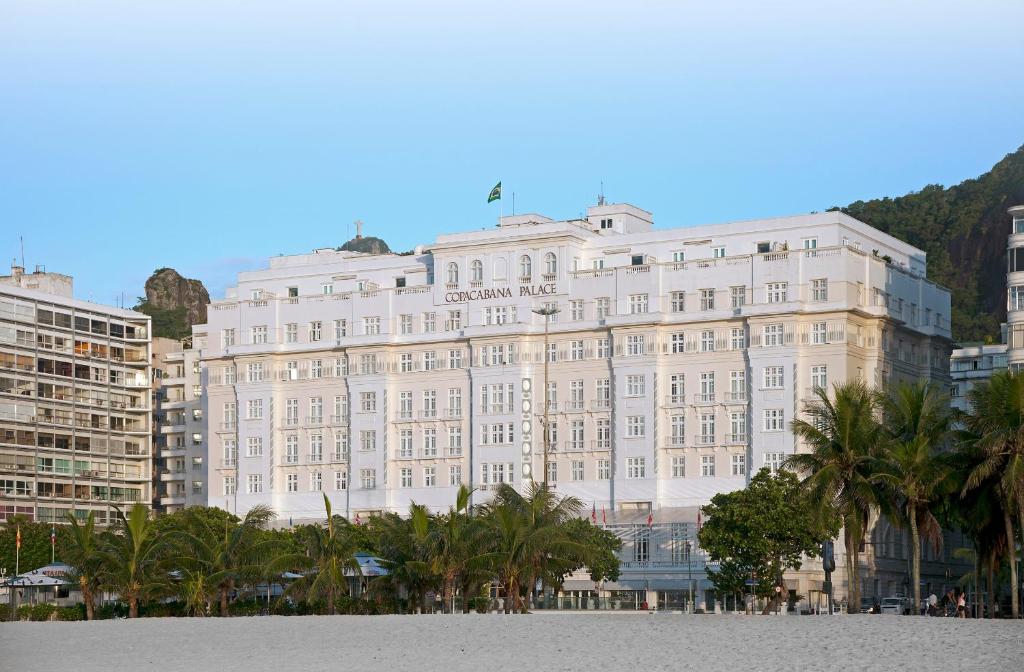

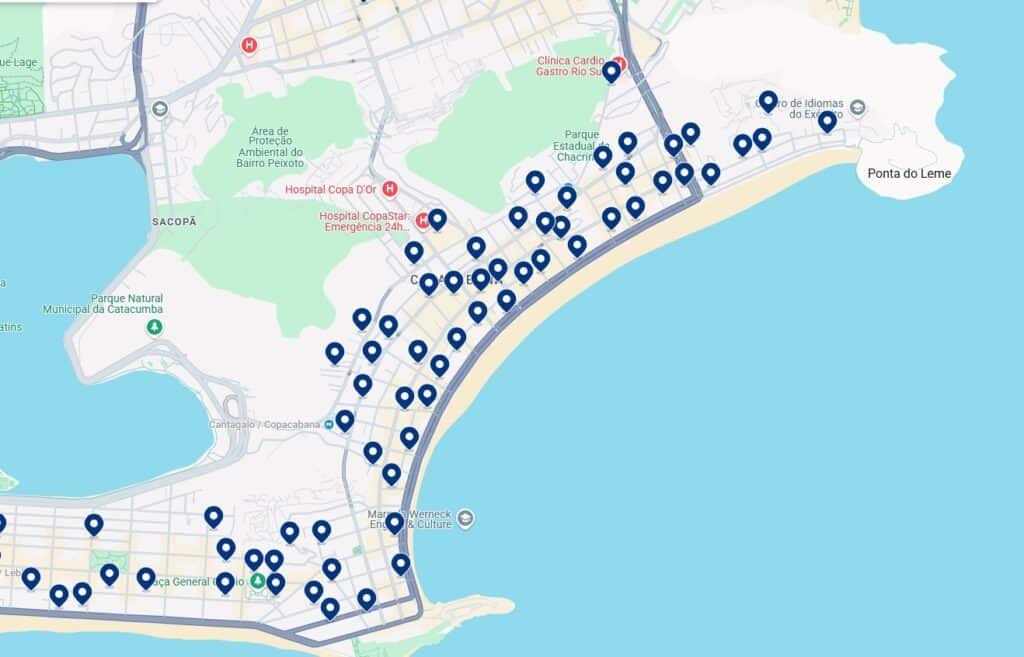





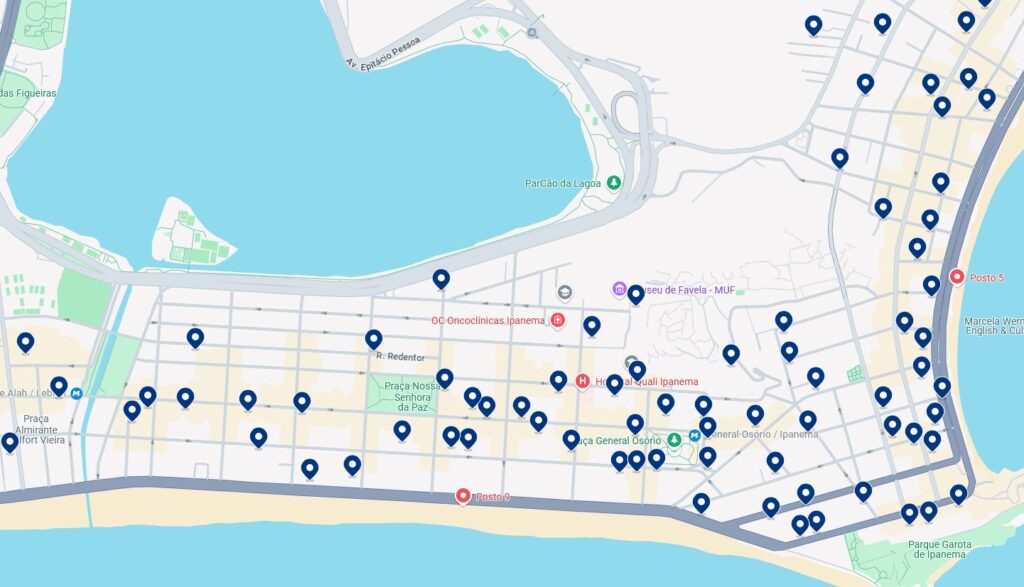



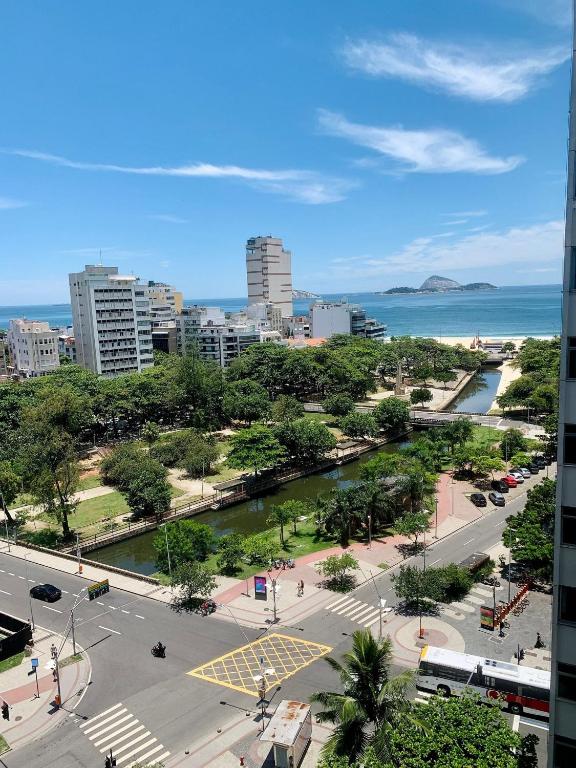
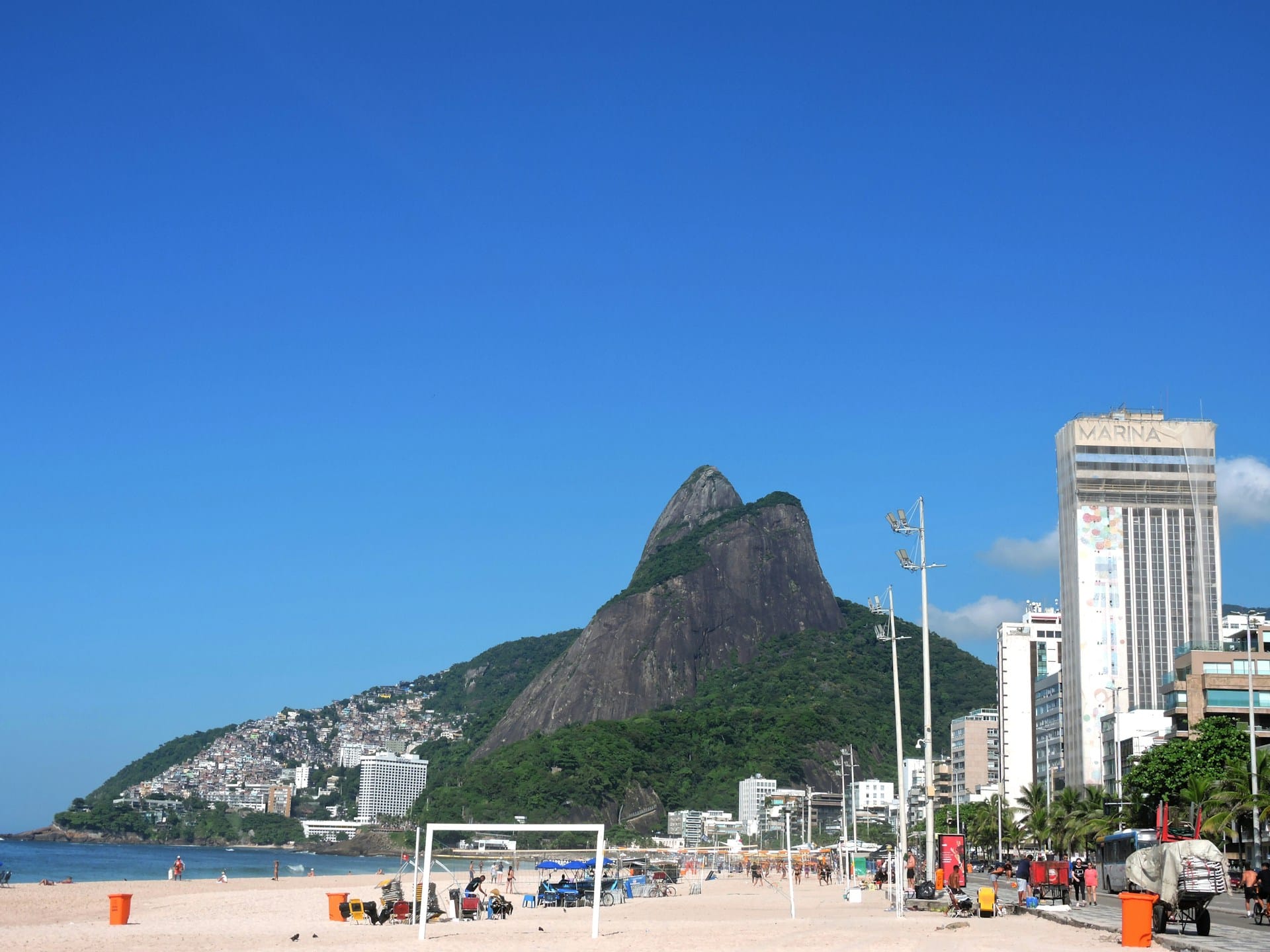
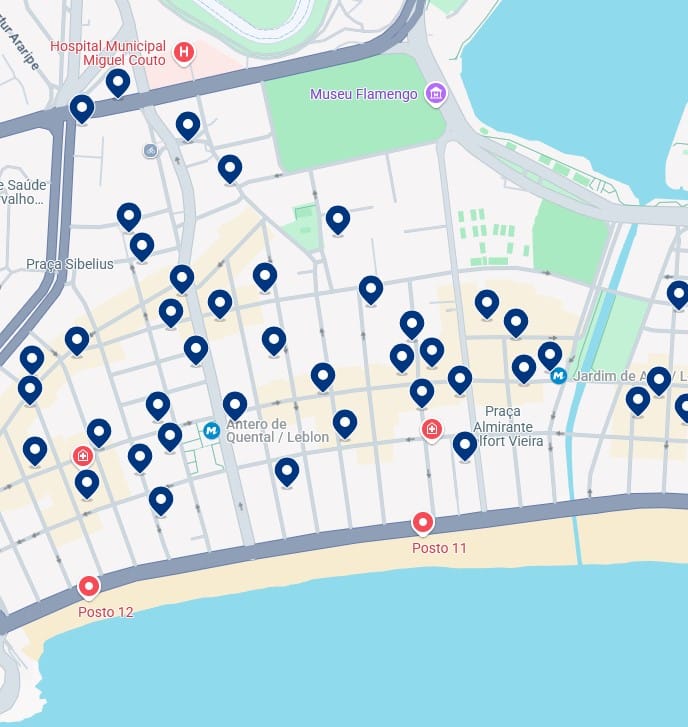



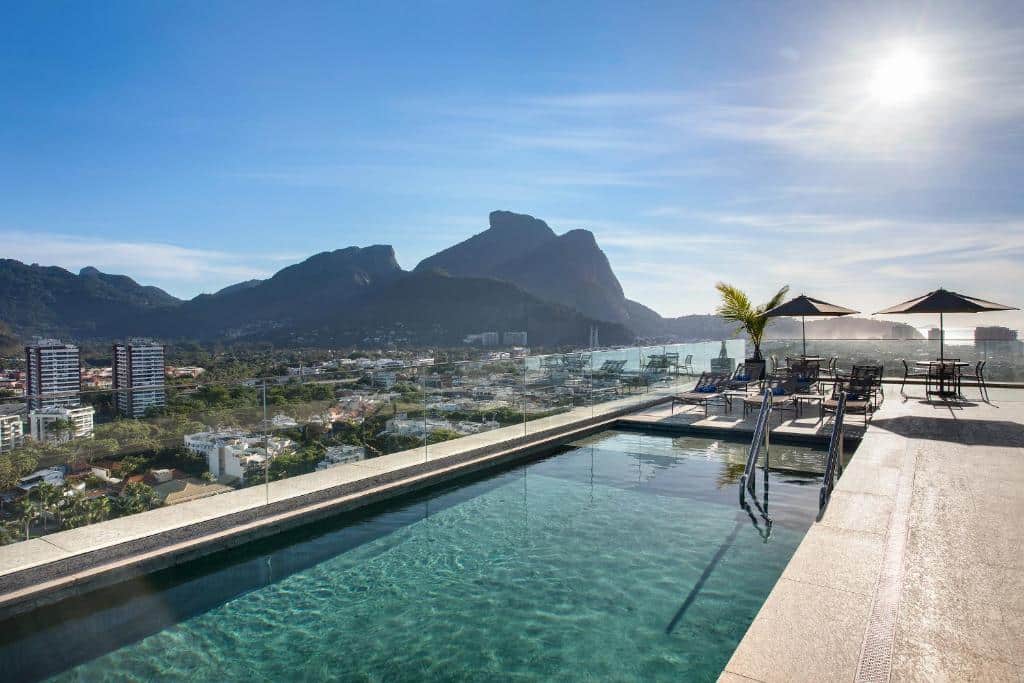
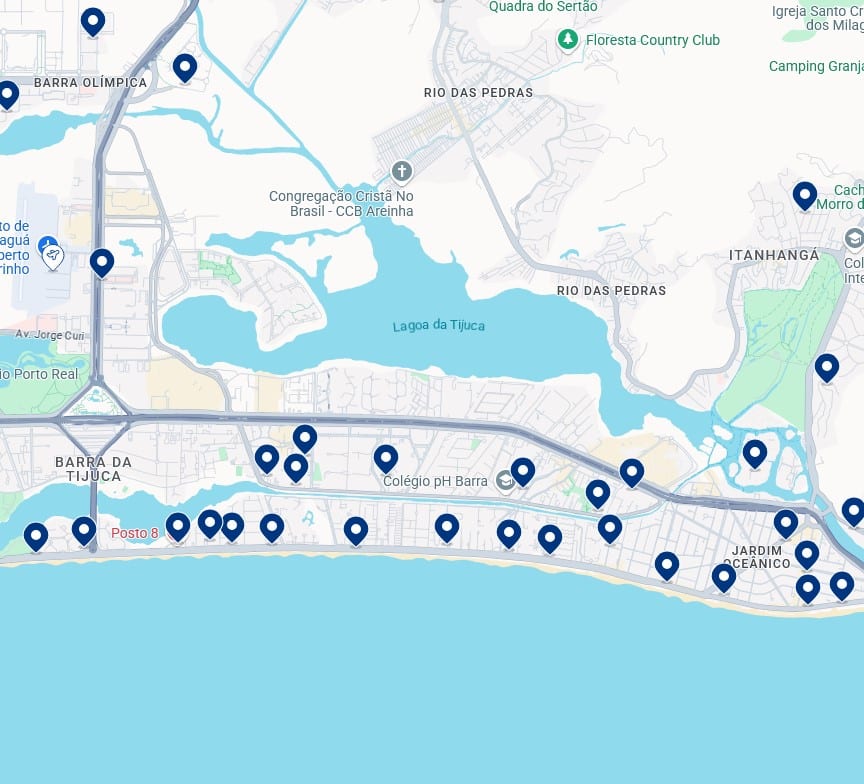



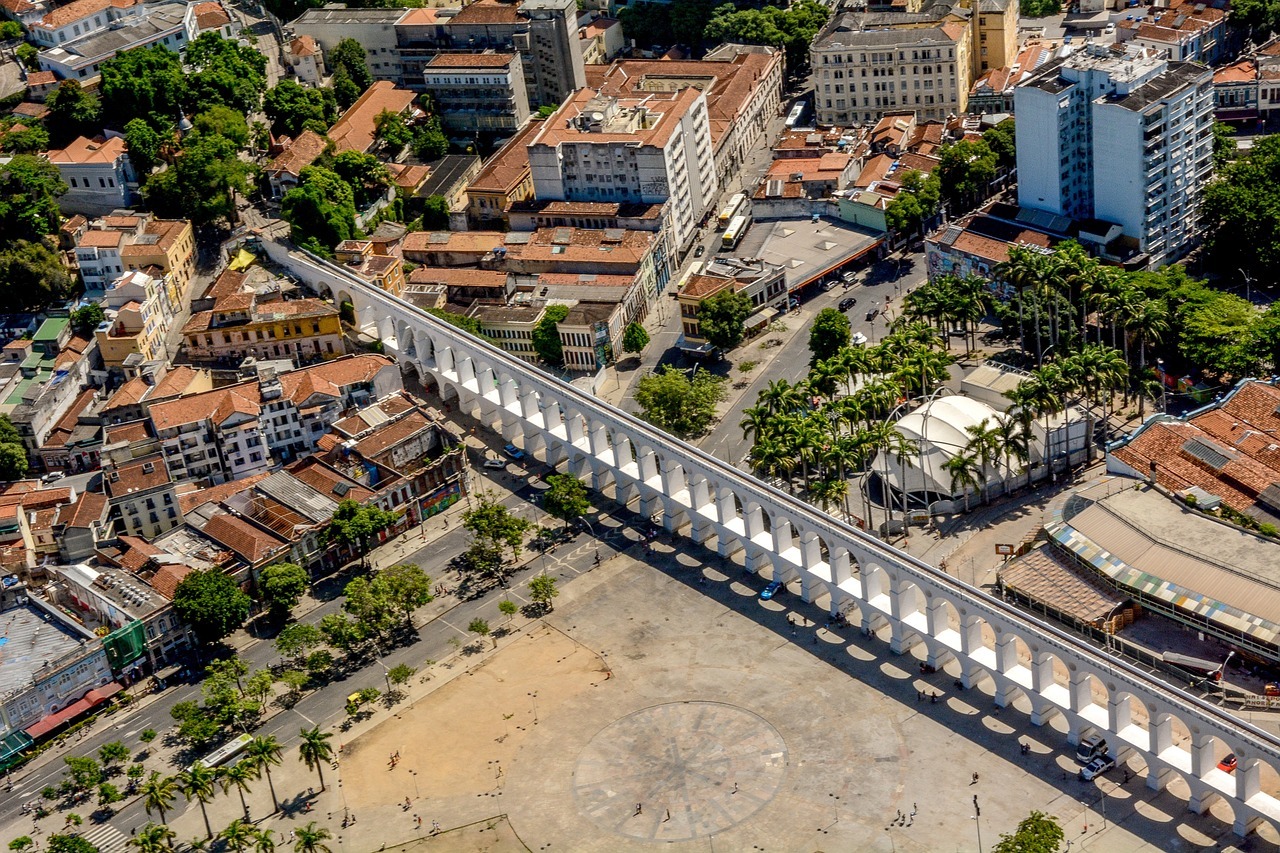
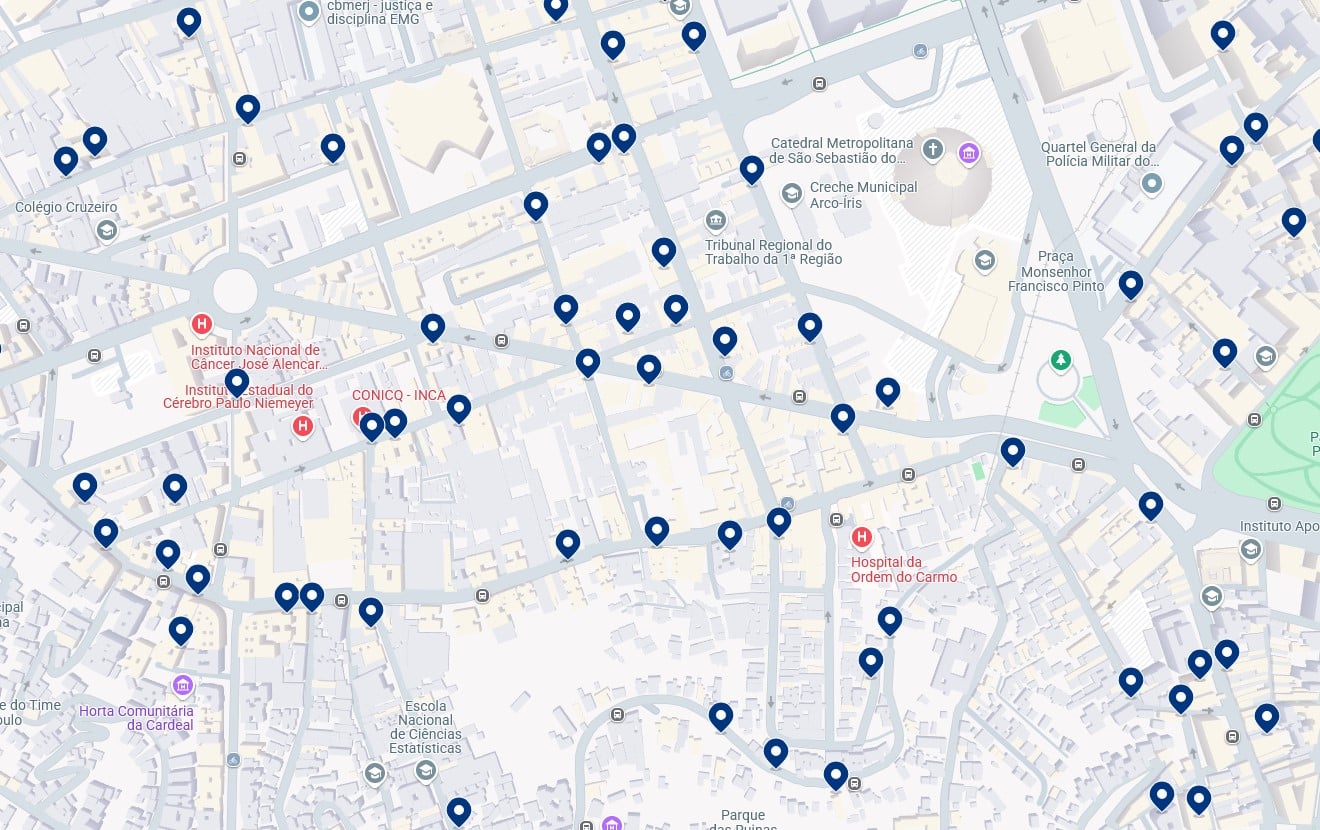

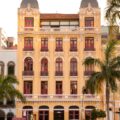

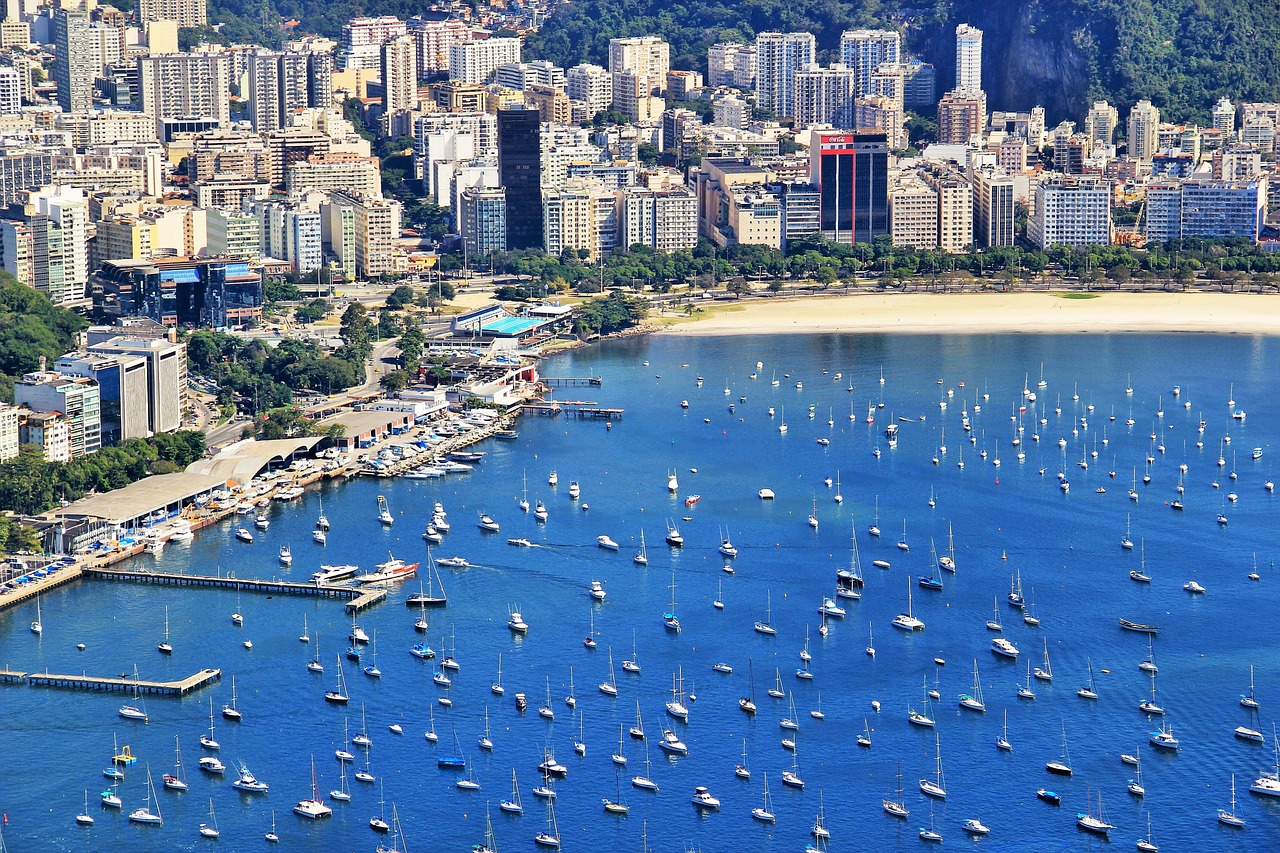
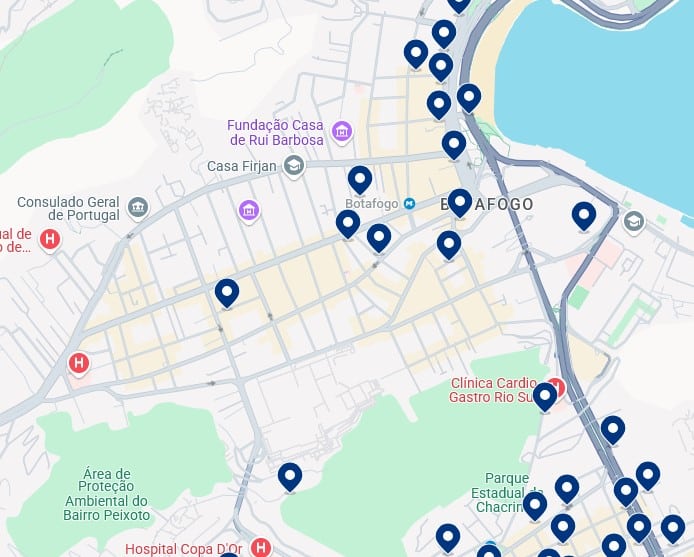


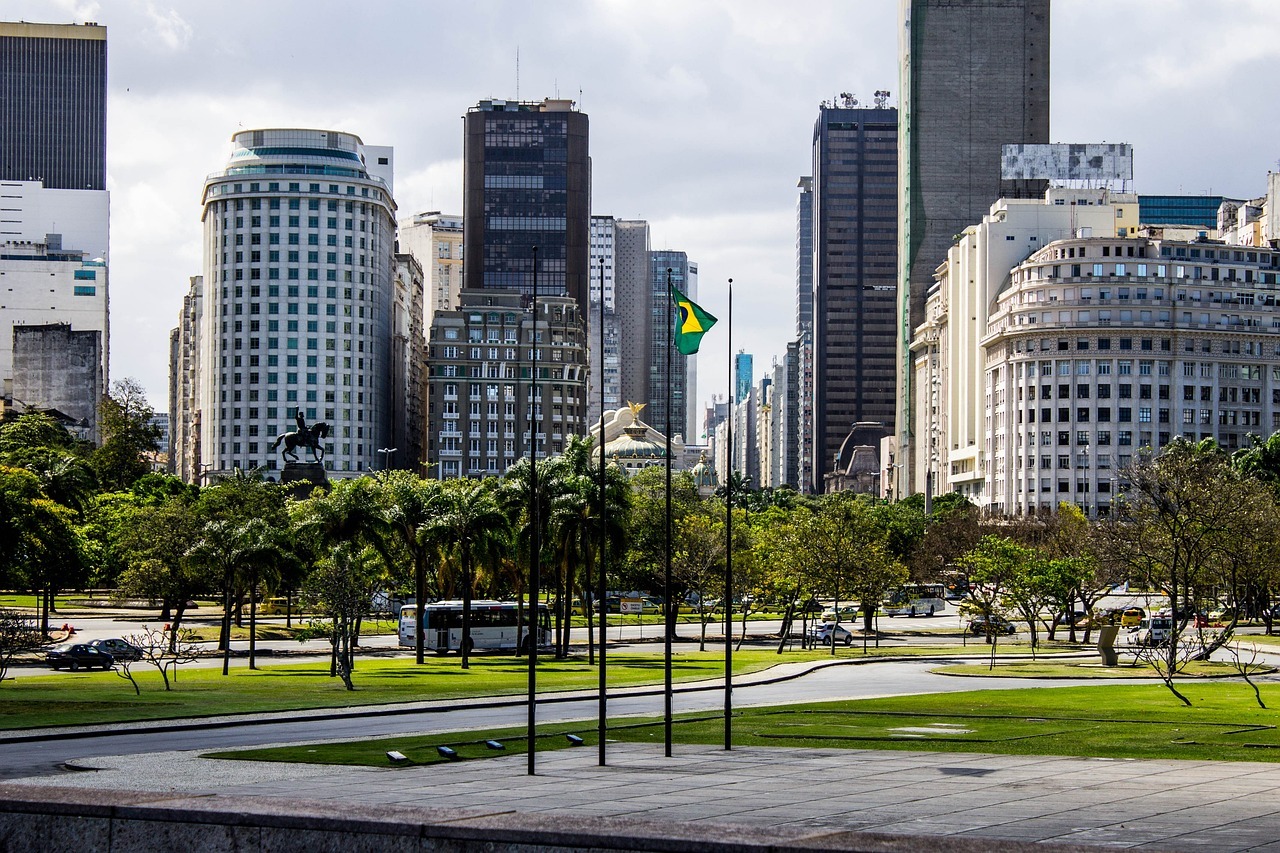
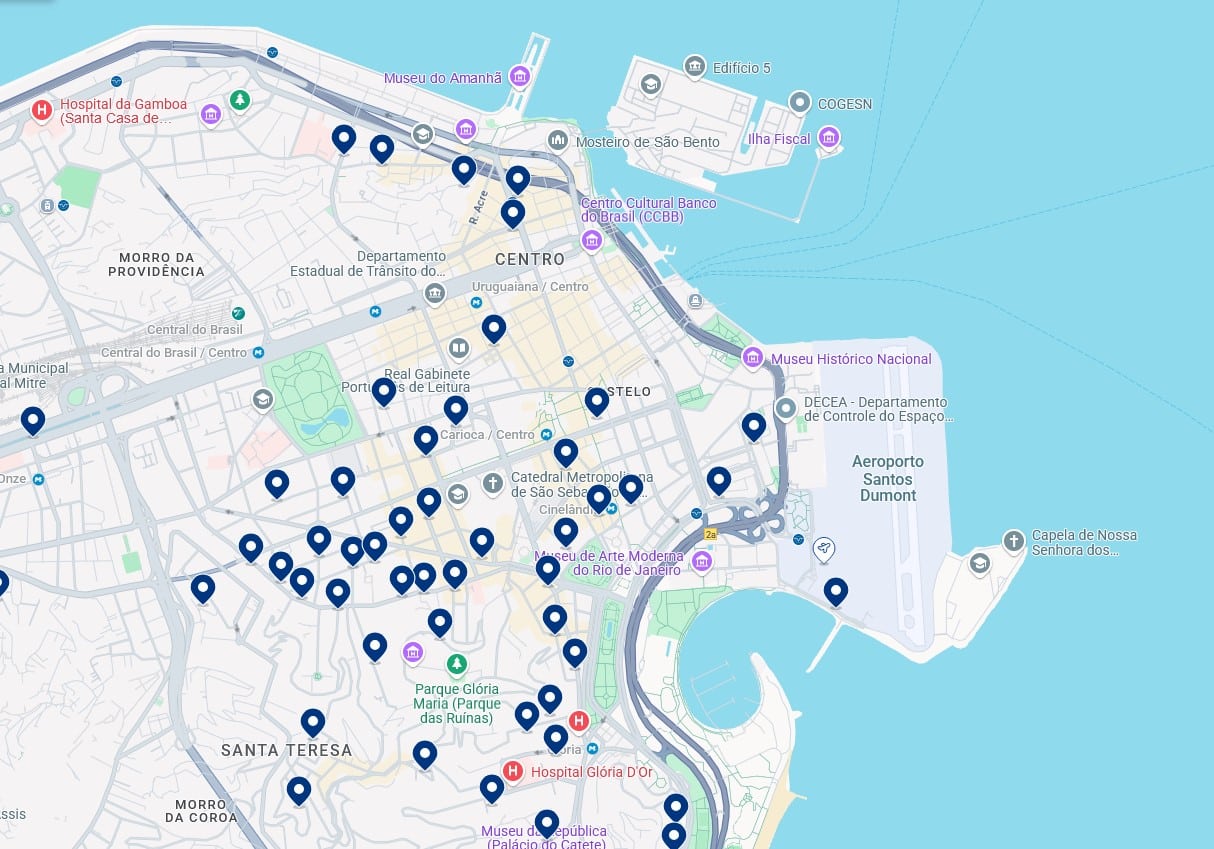



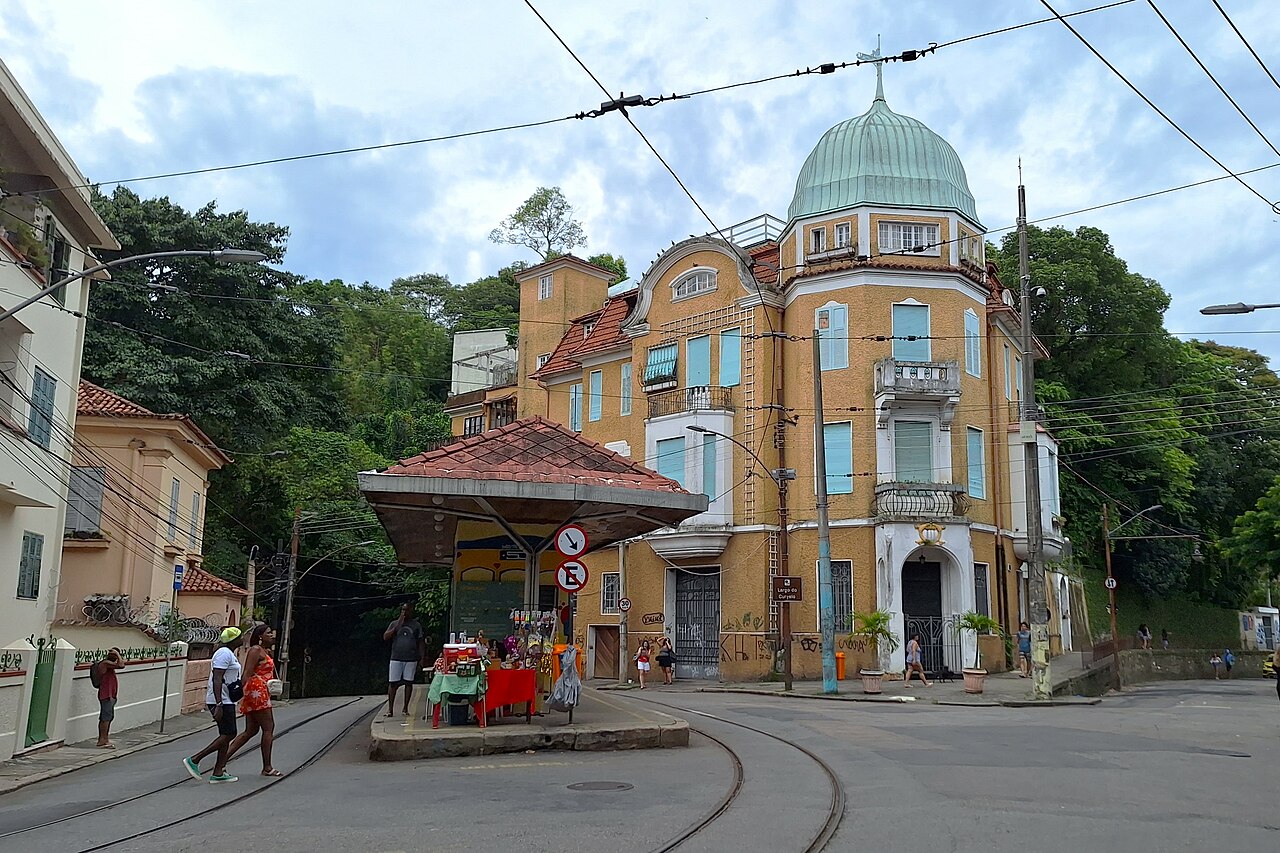
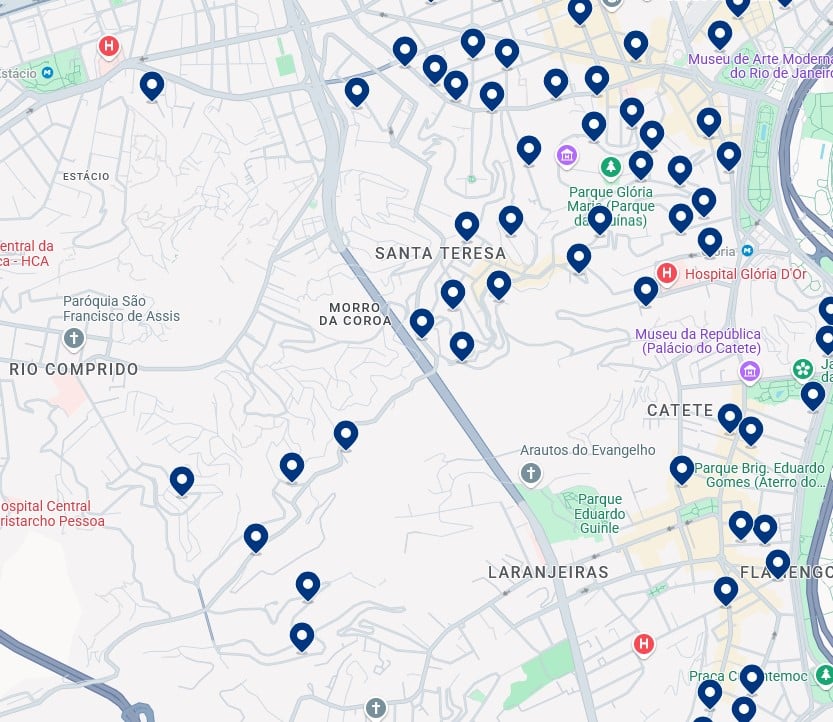


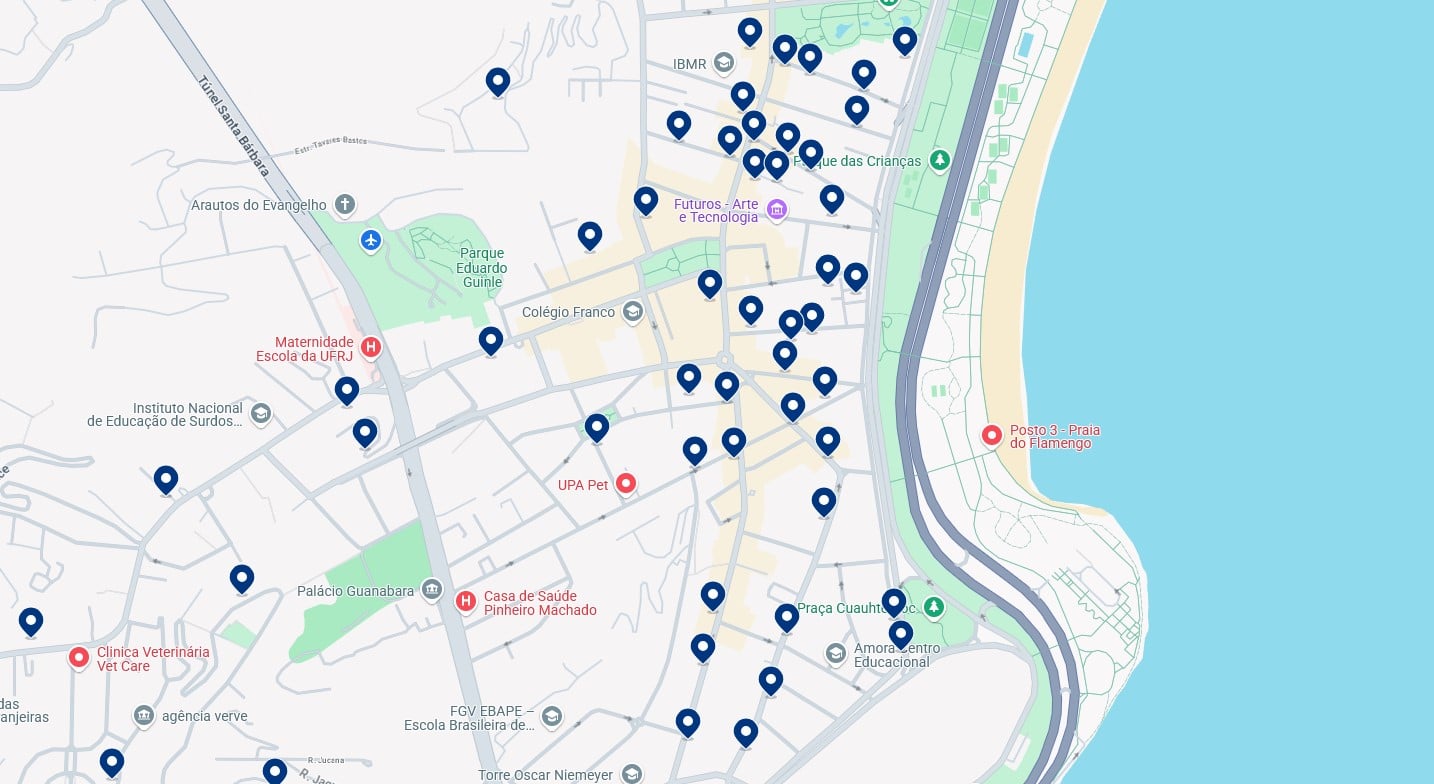
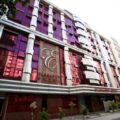



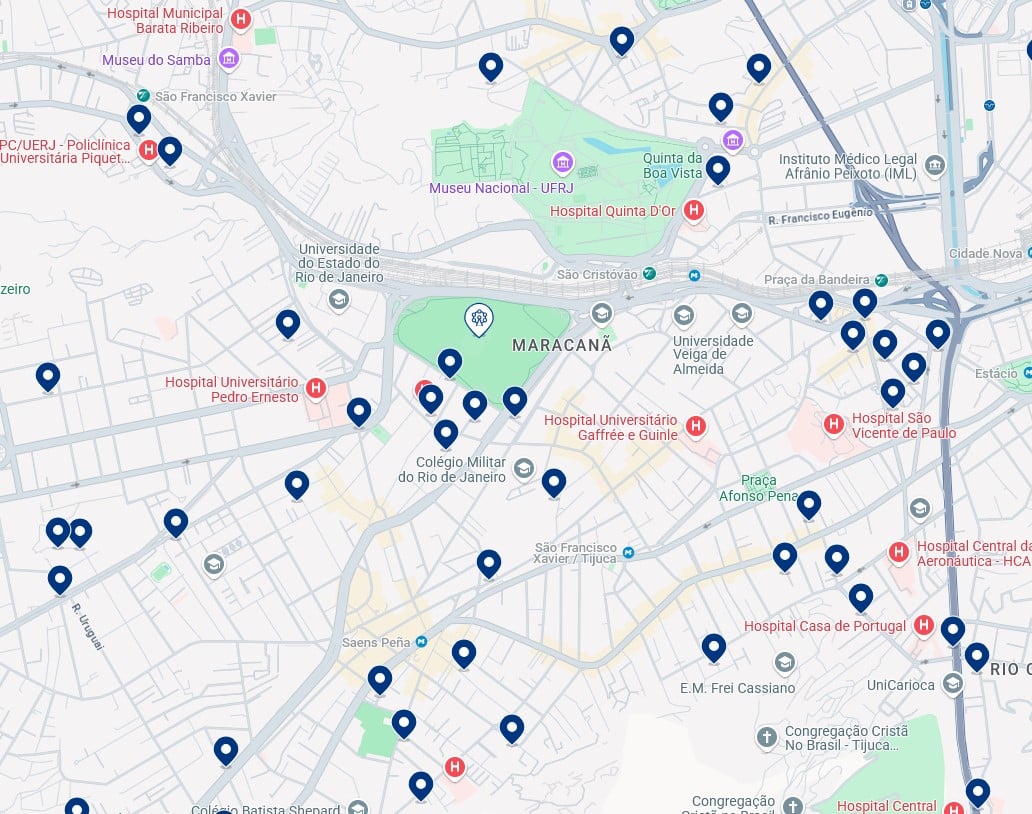


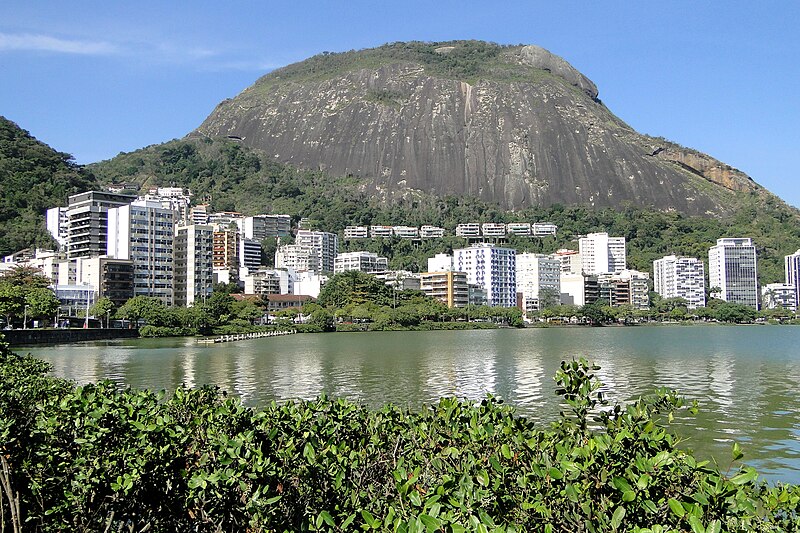
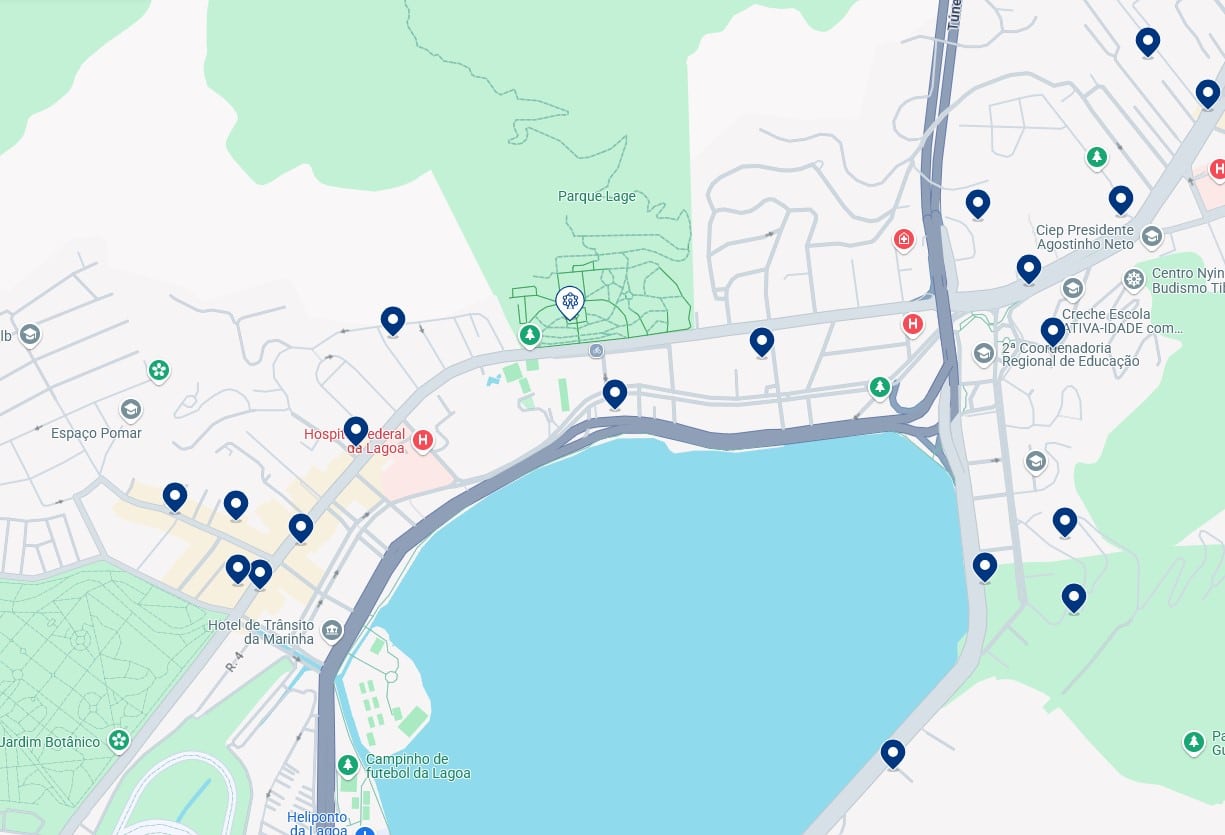

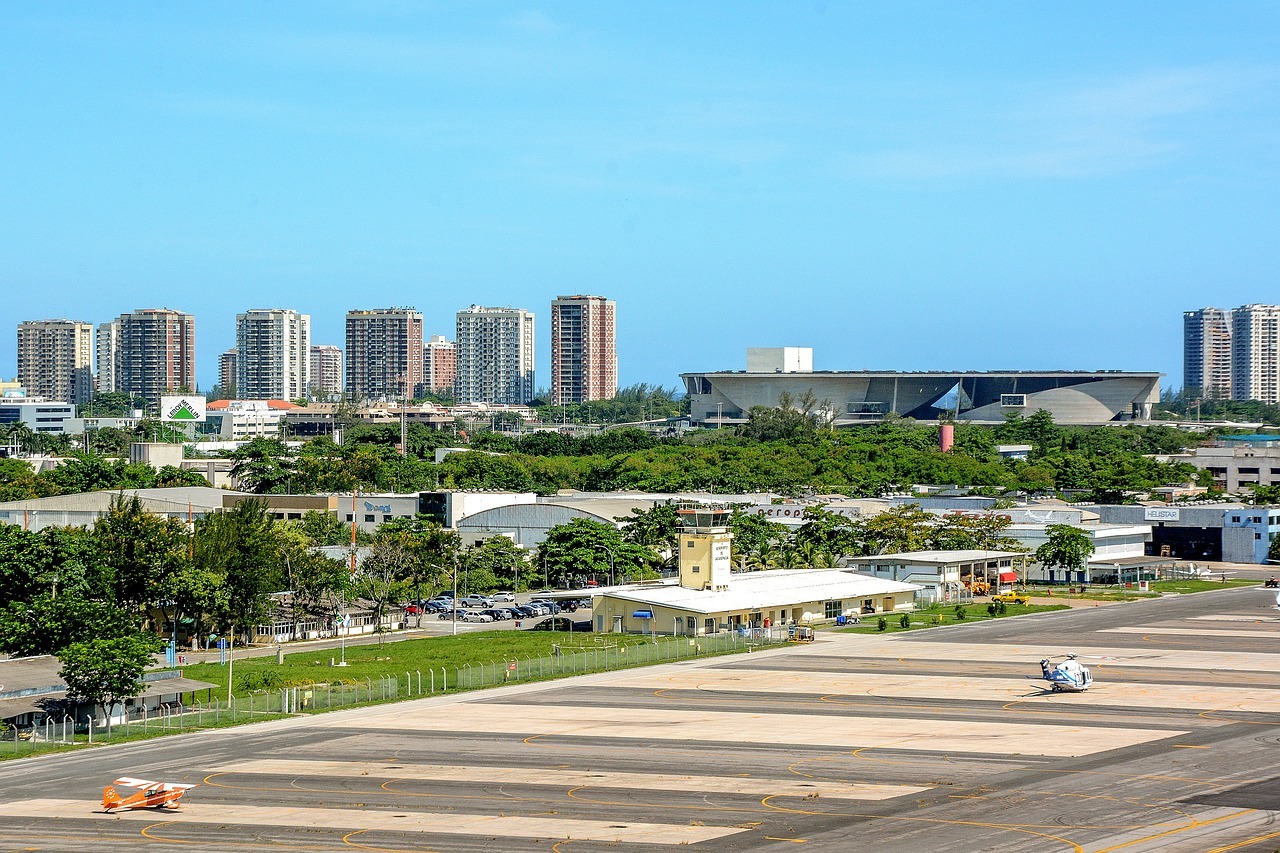




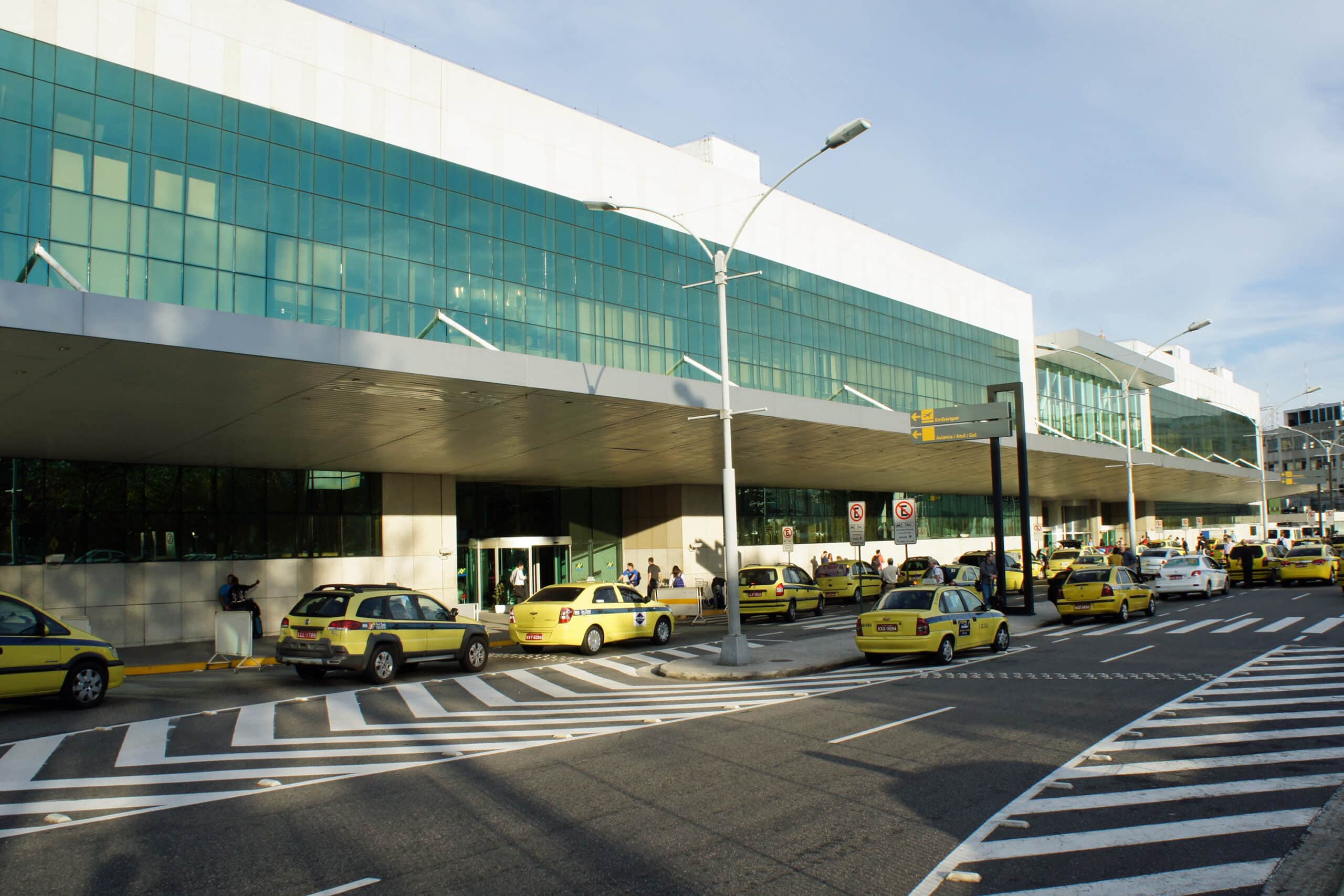
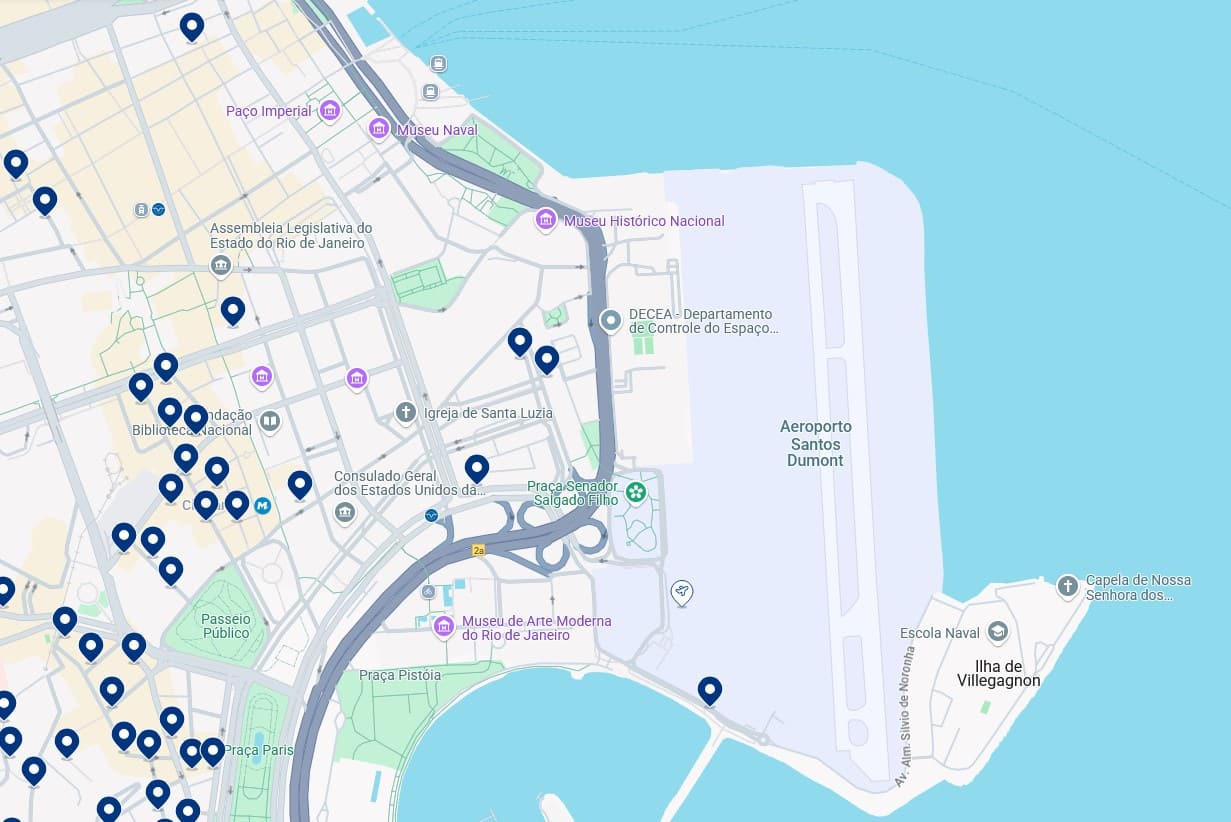

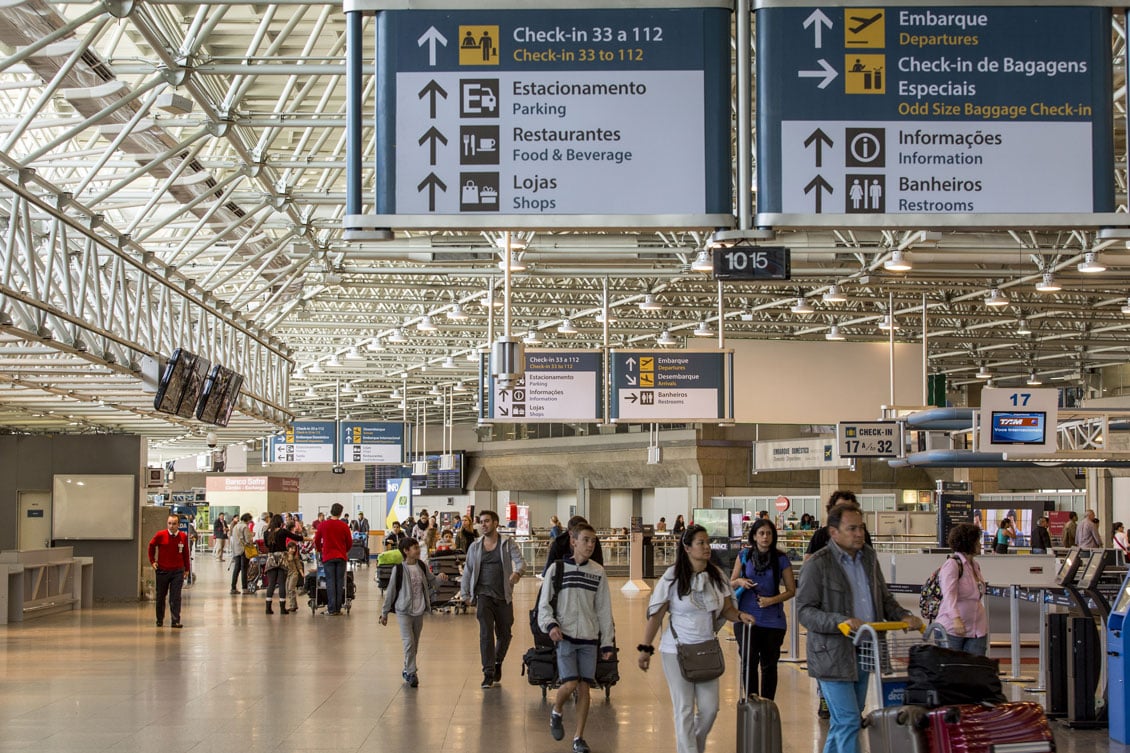
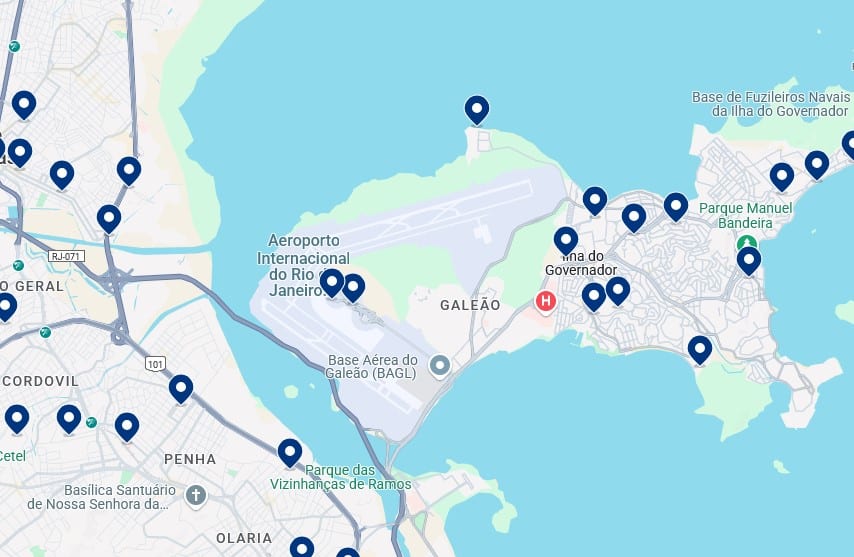



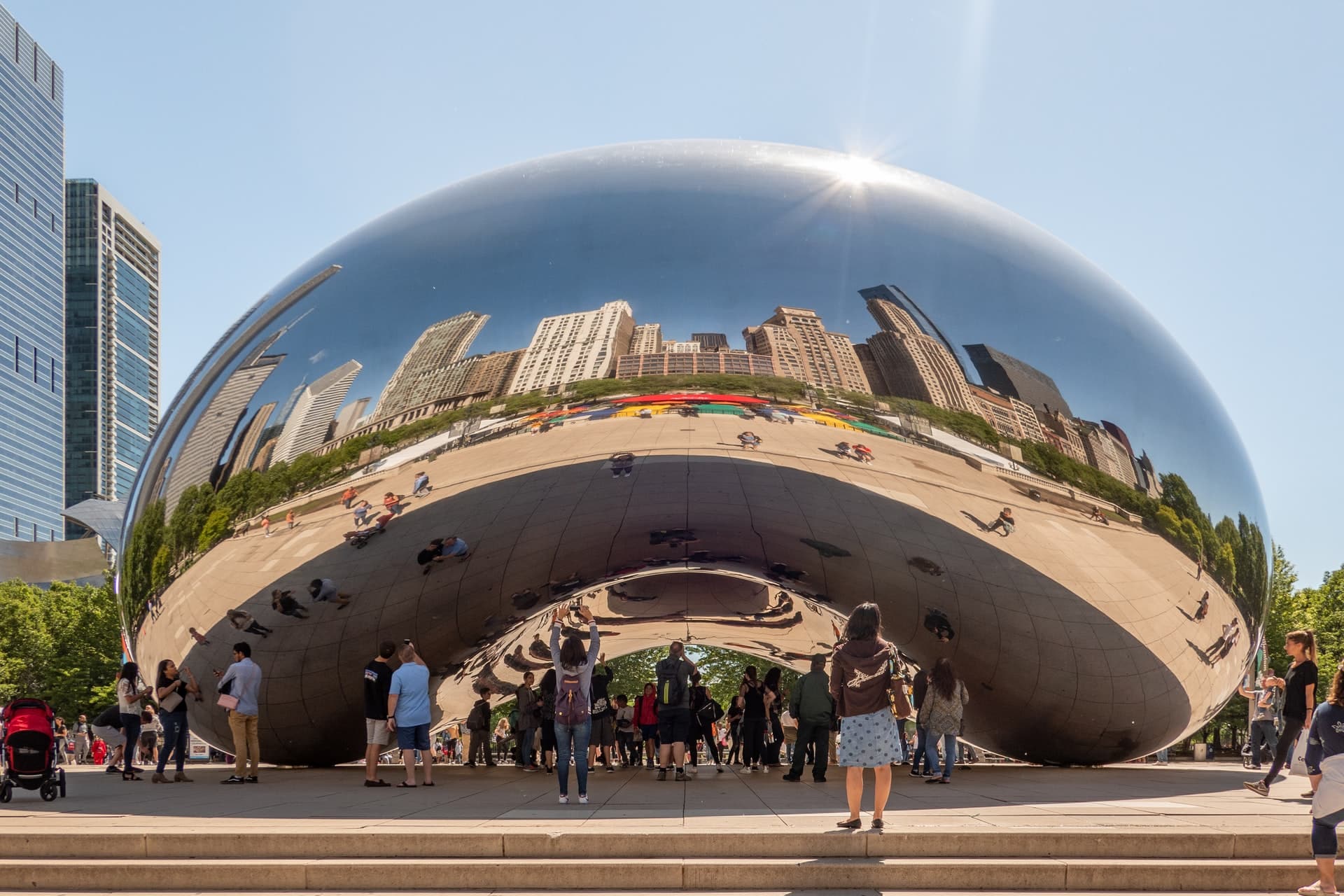

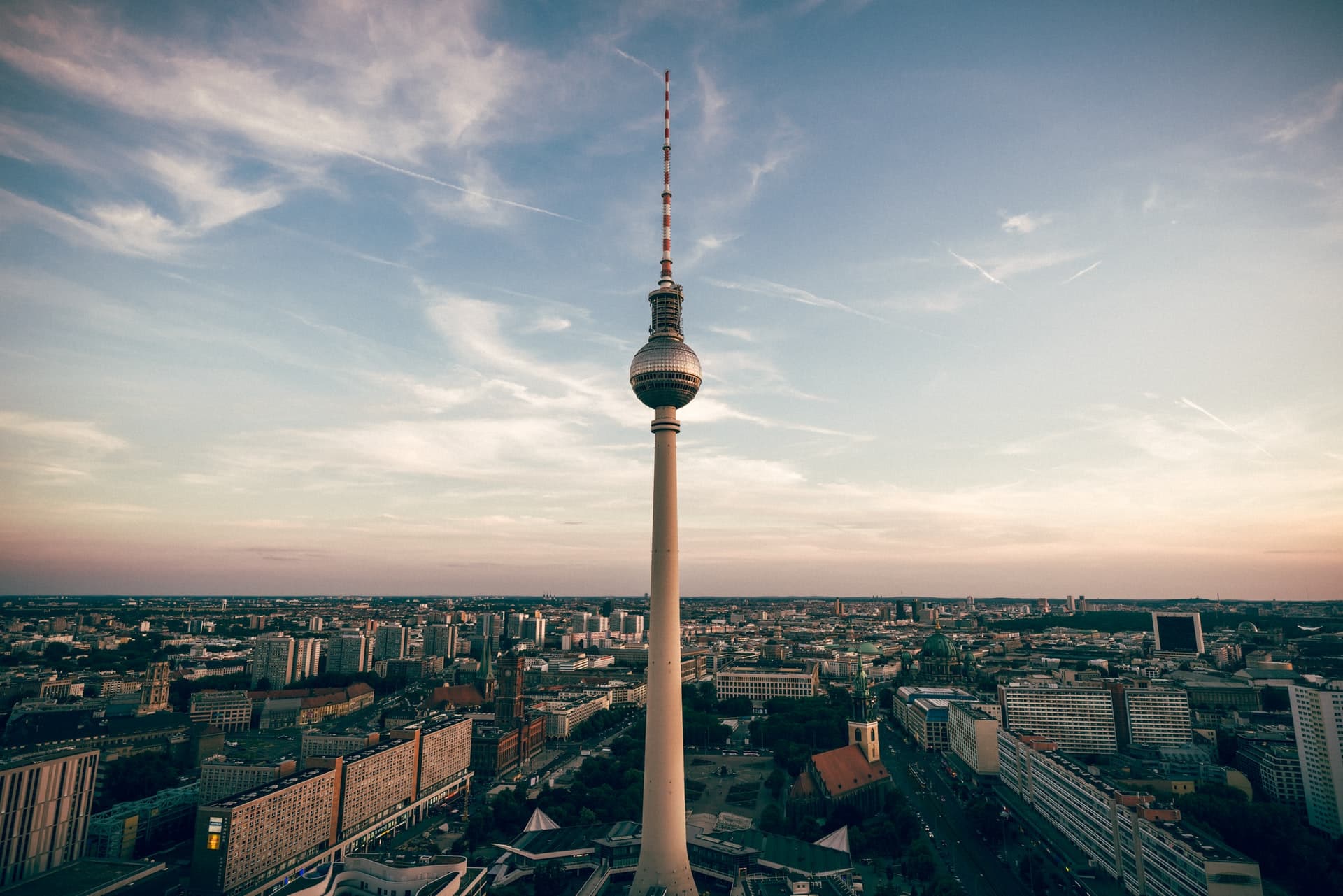

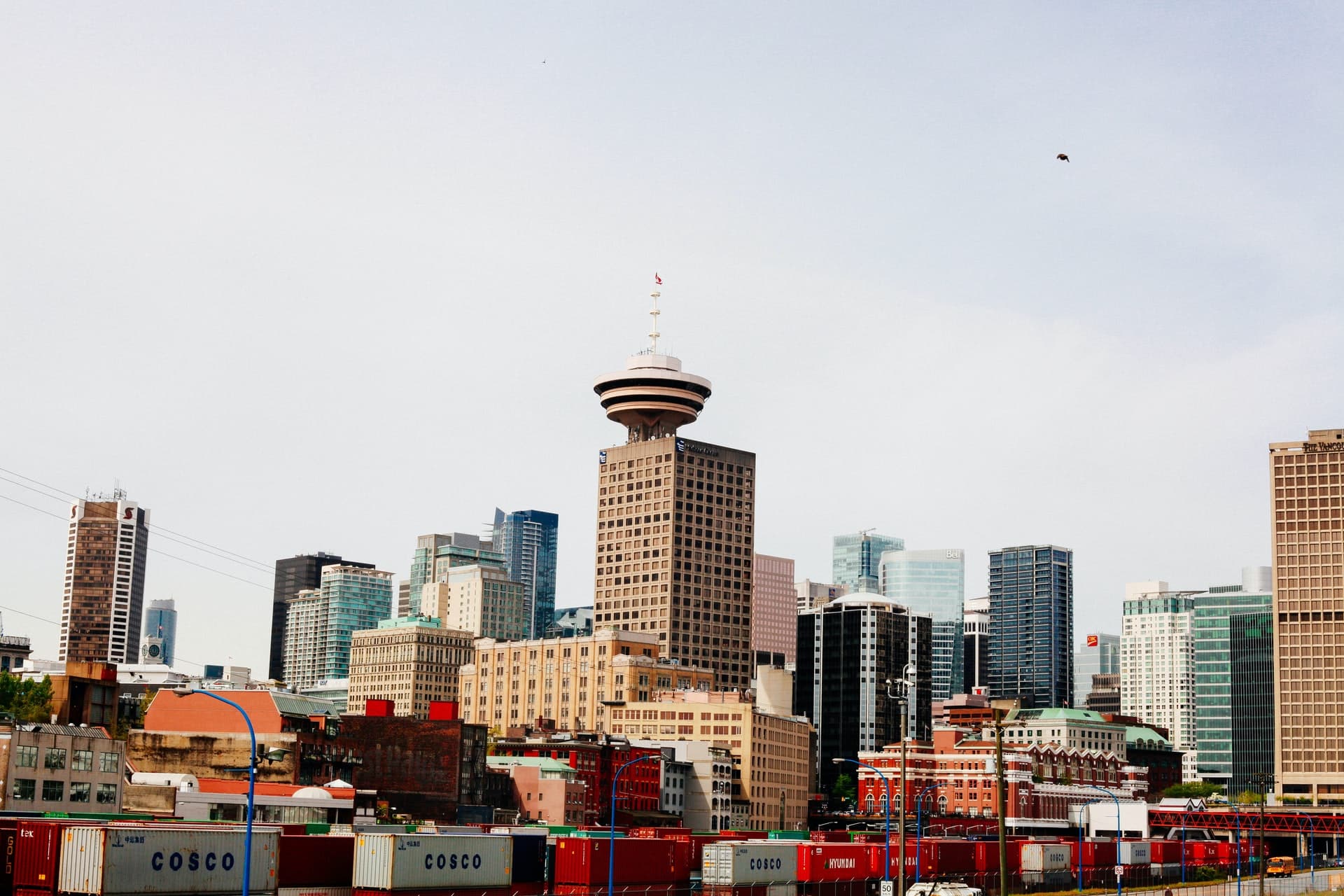


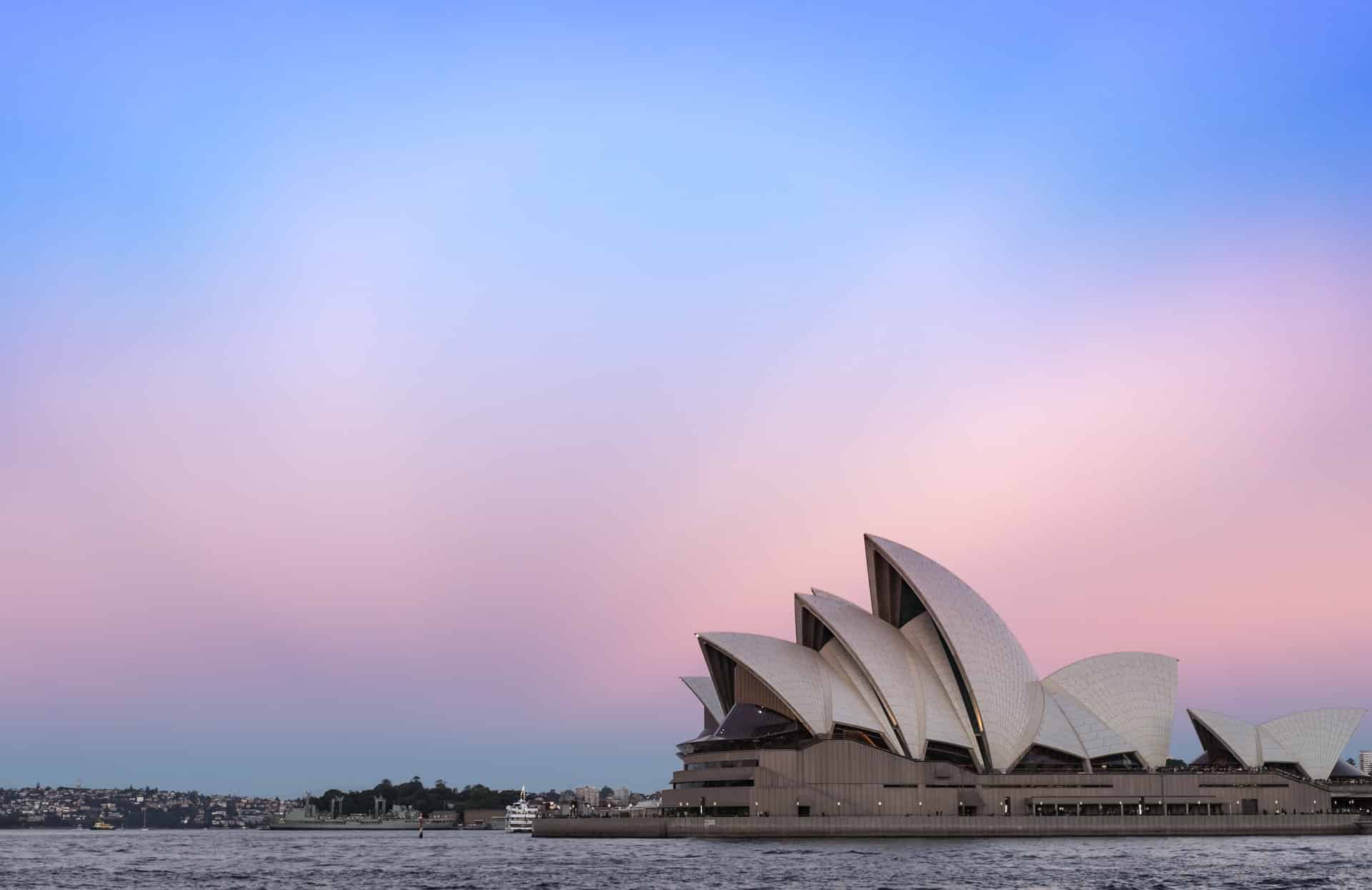

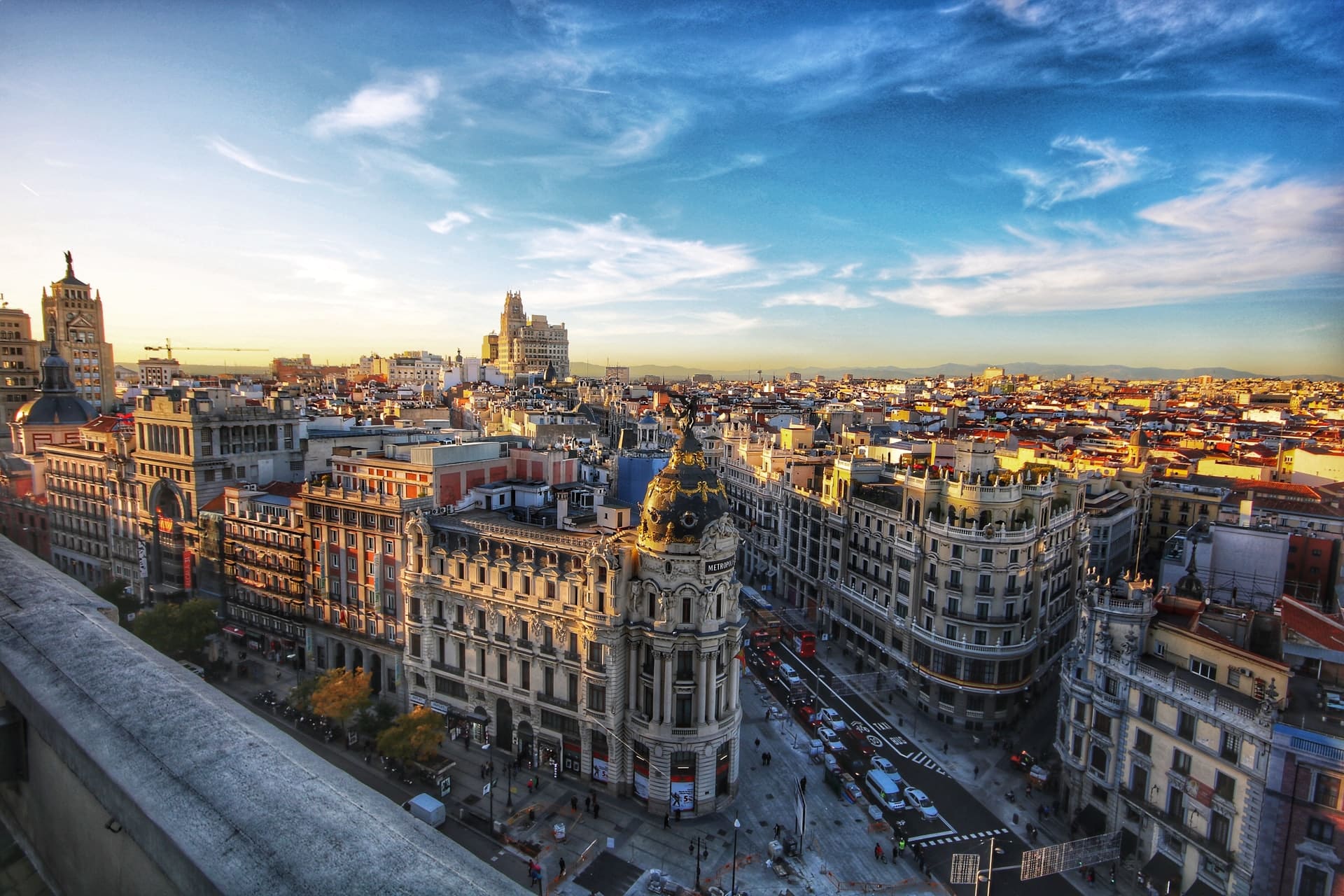

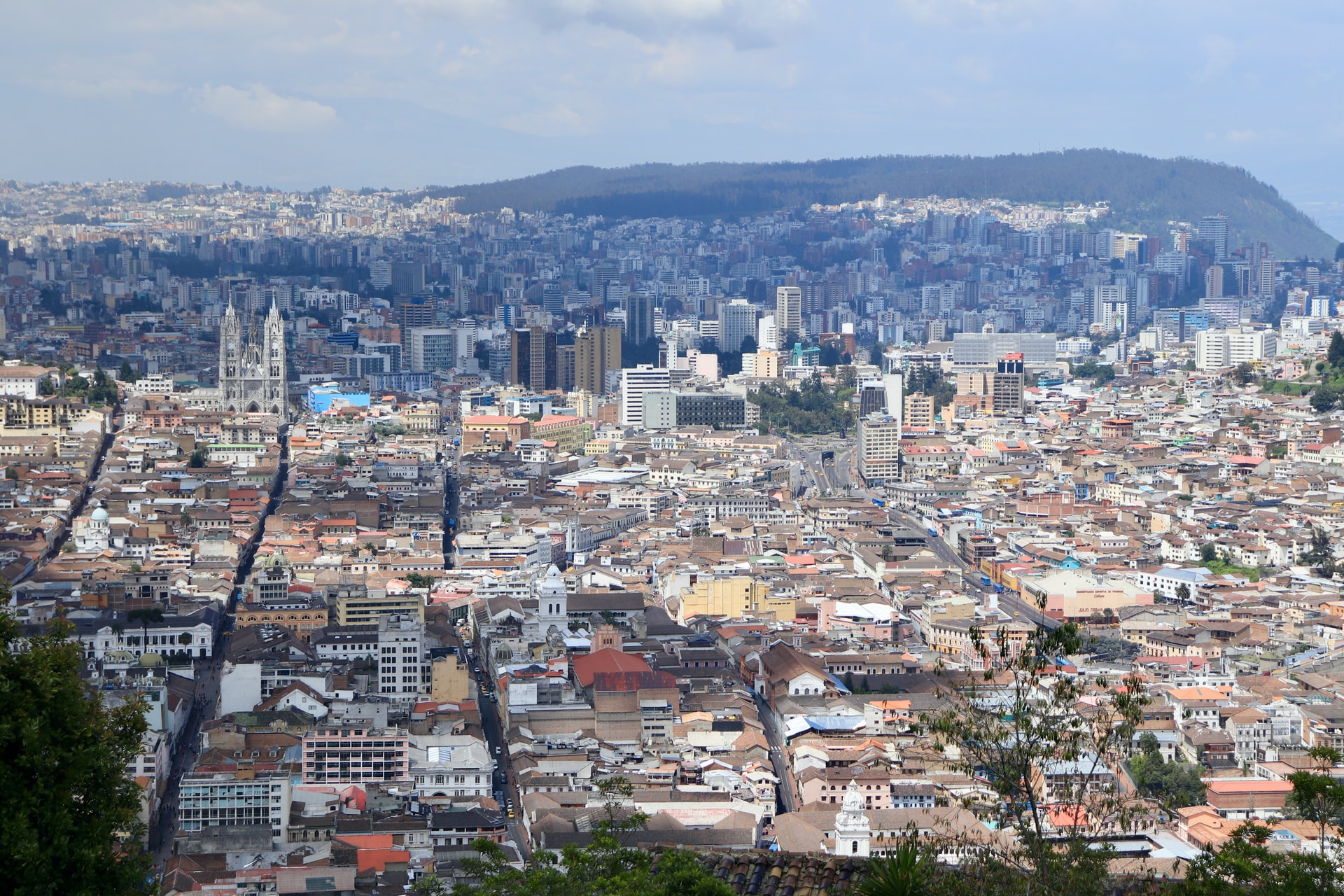
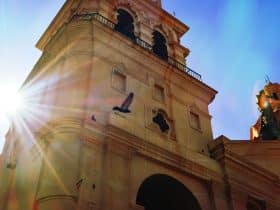
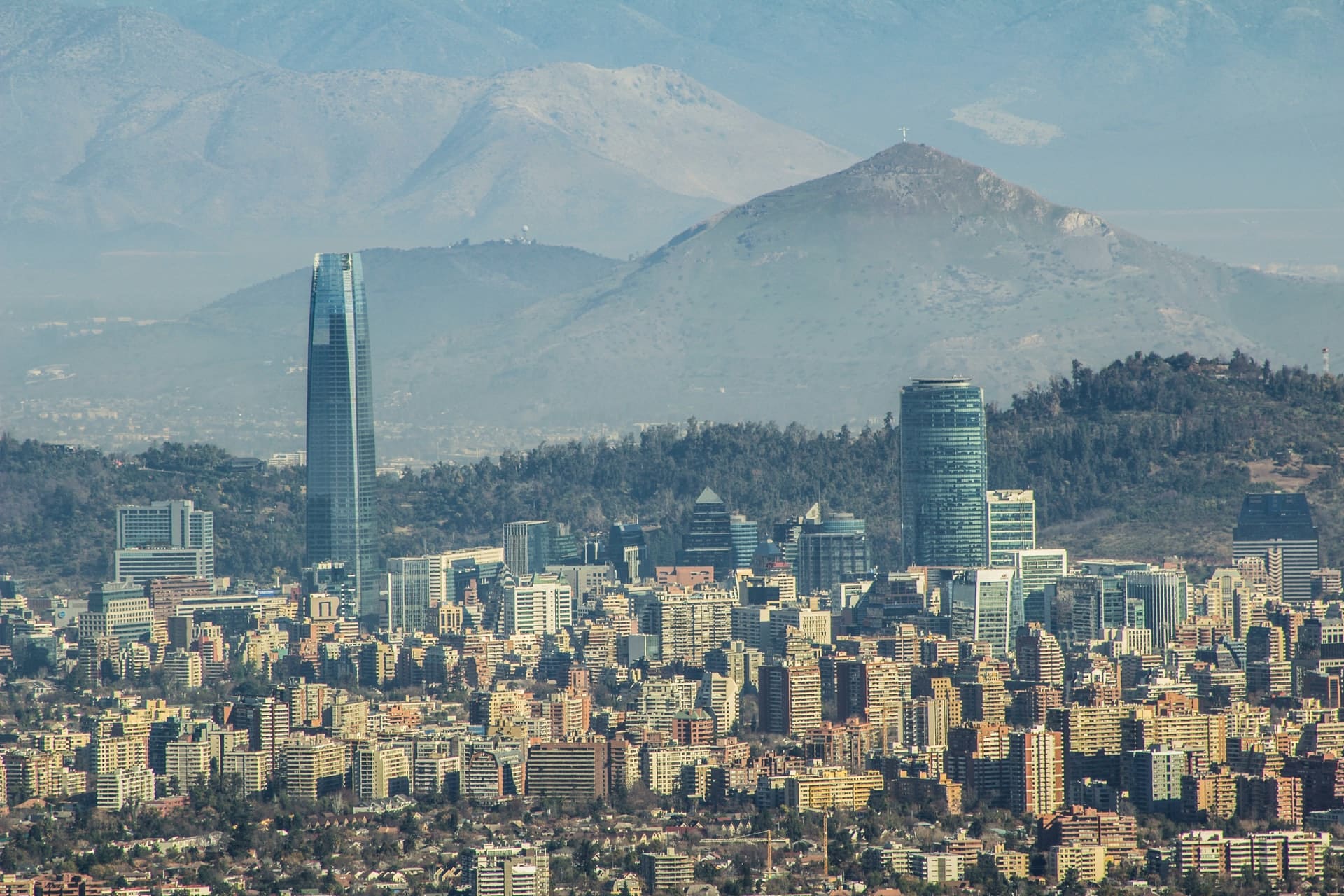
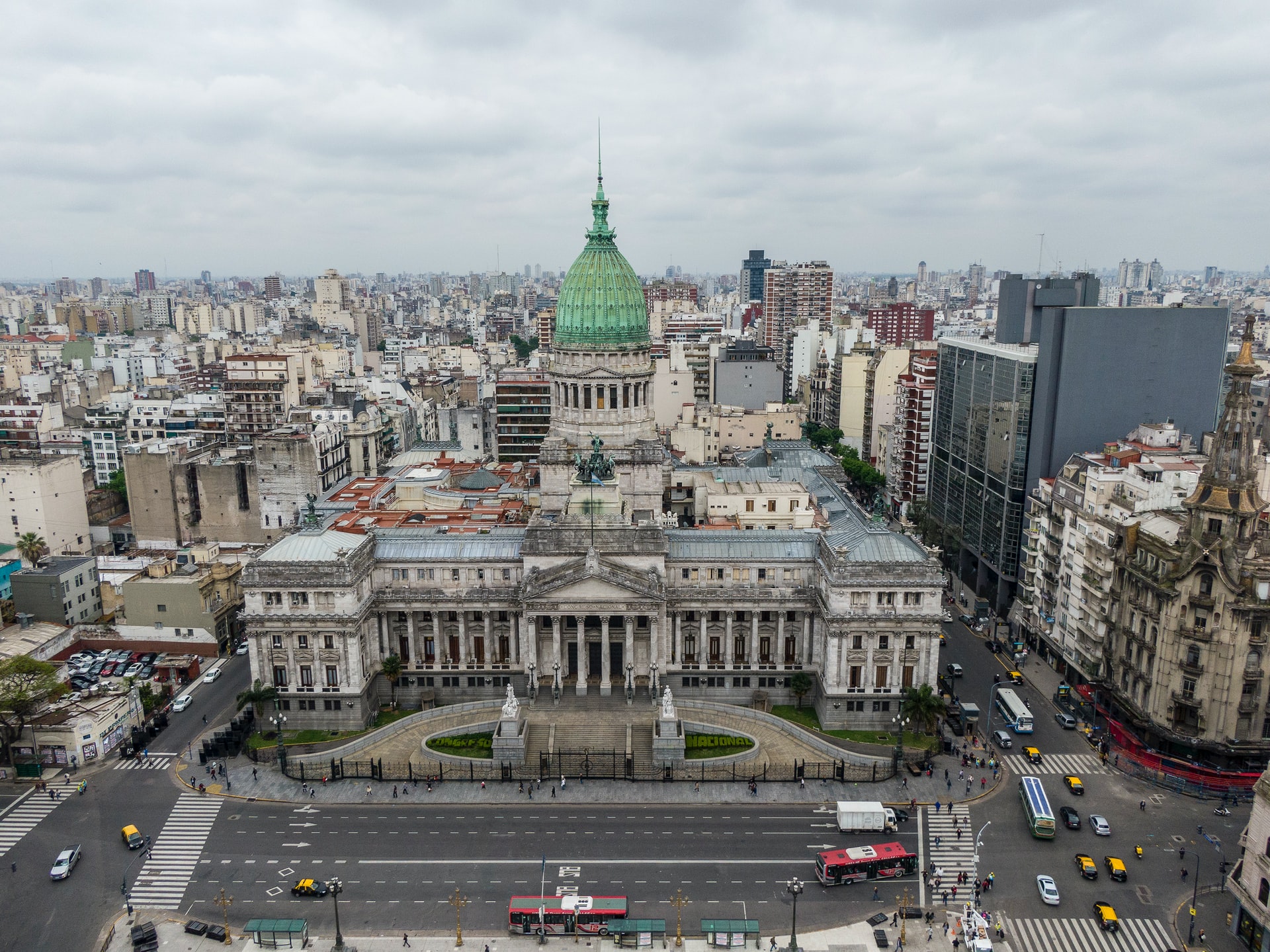
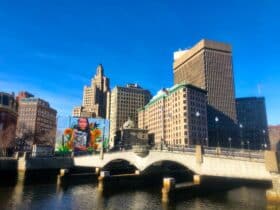
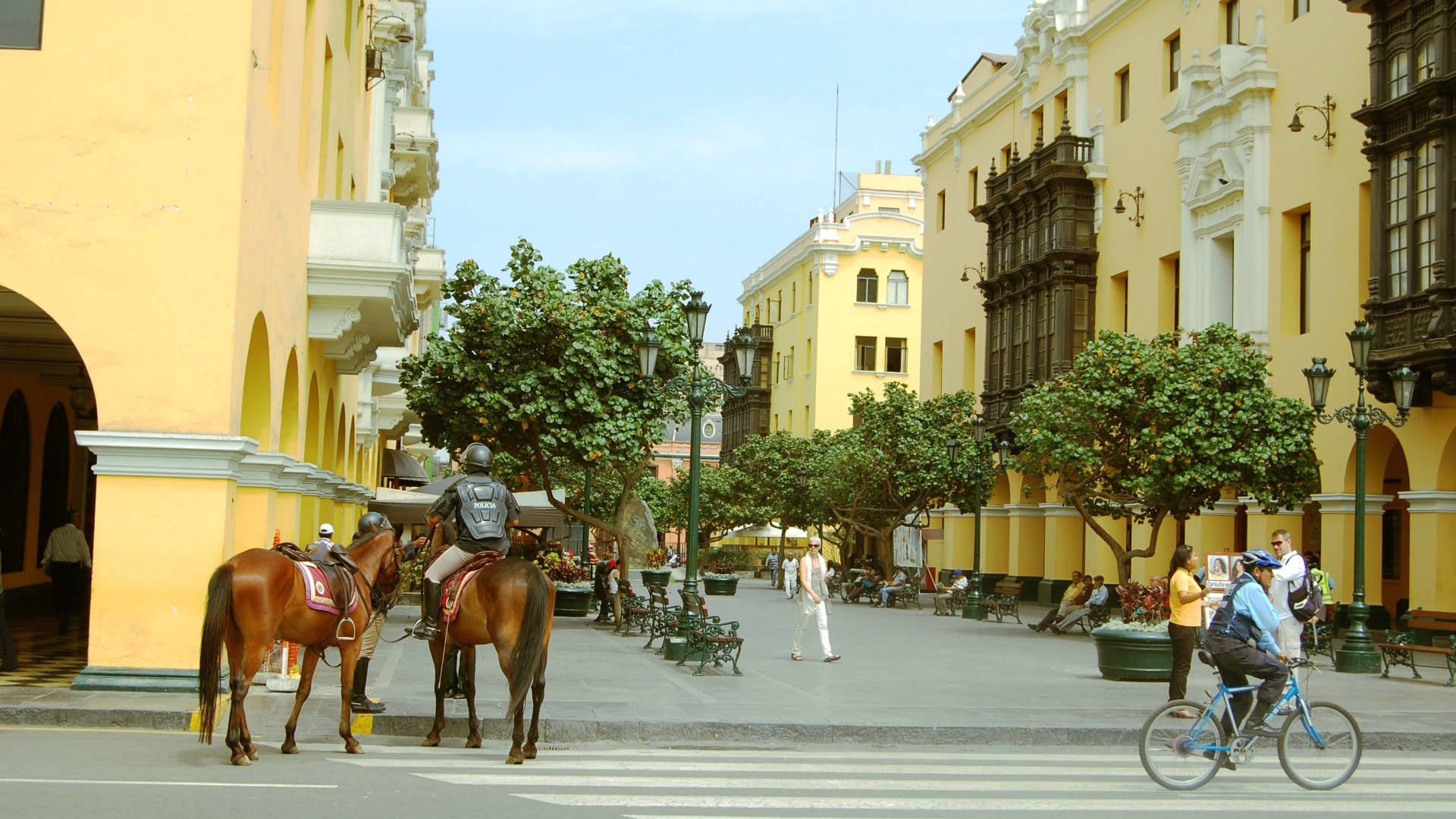


Leave a Reply
View Comments